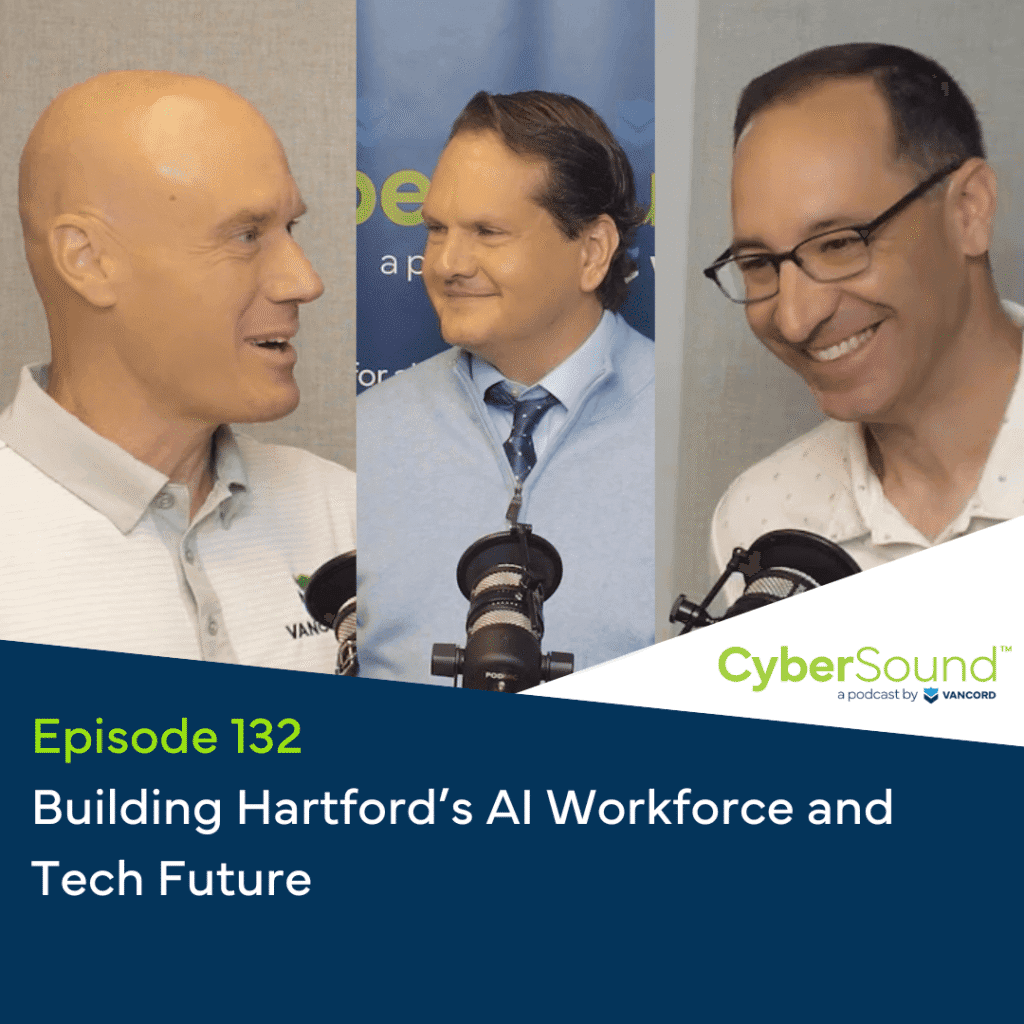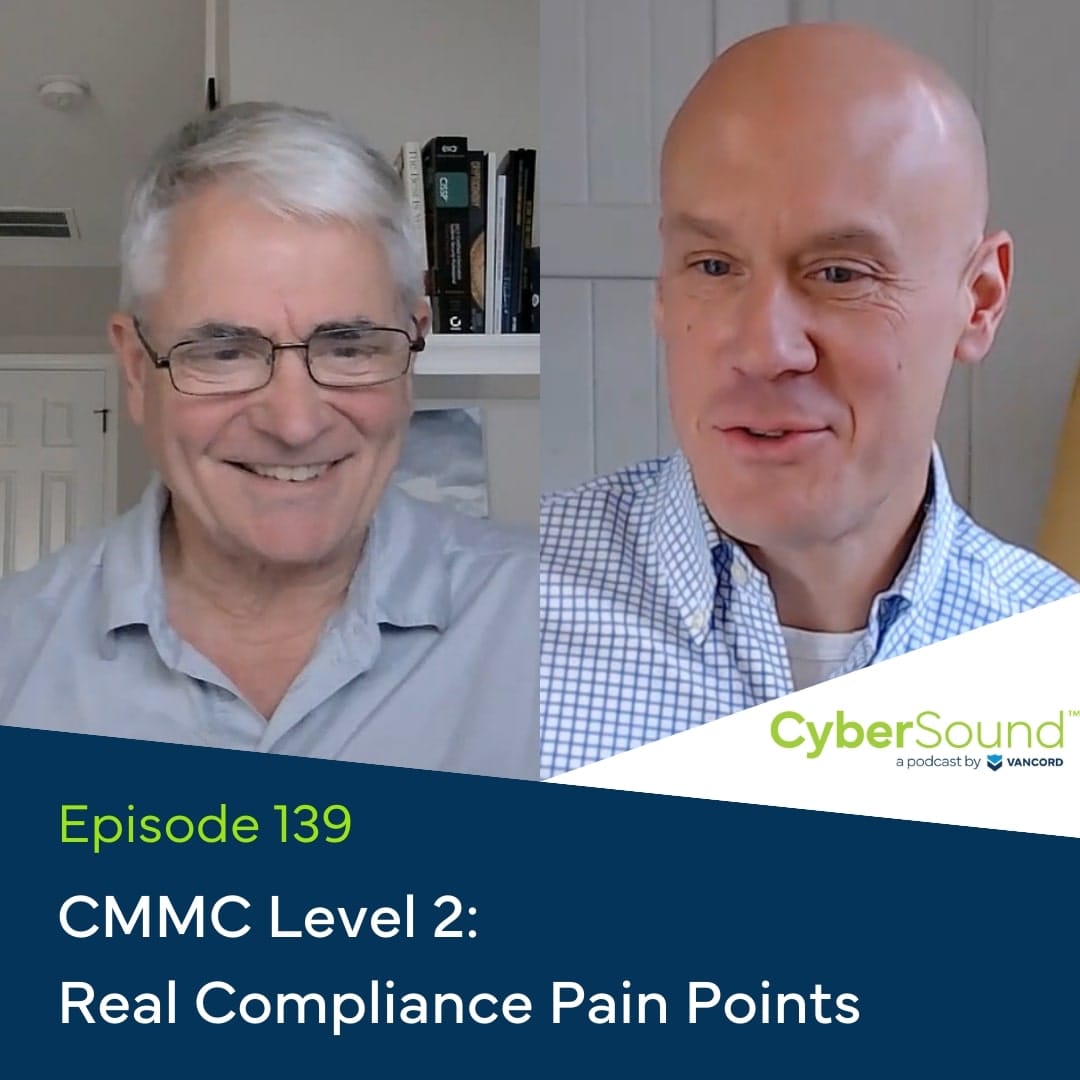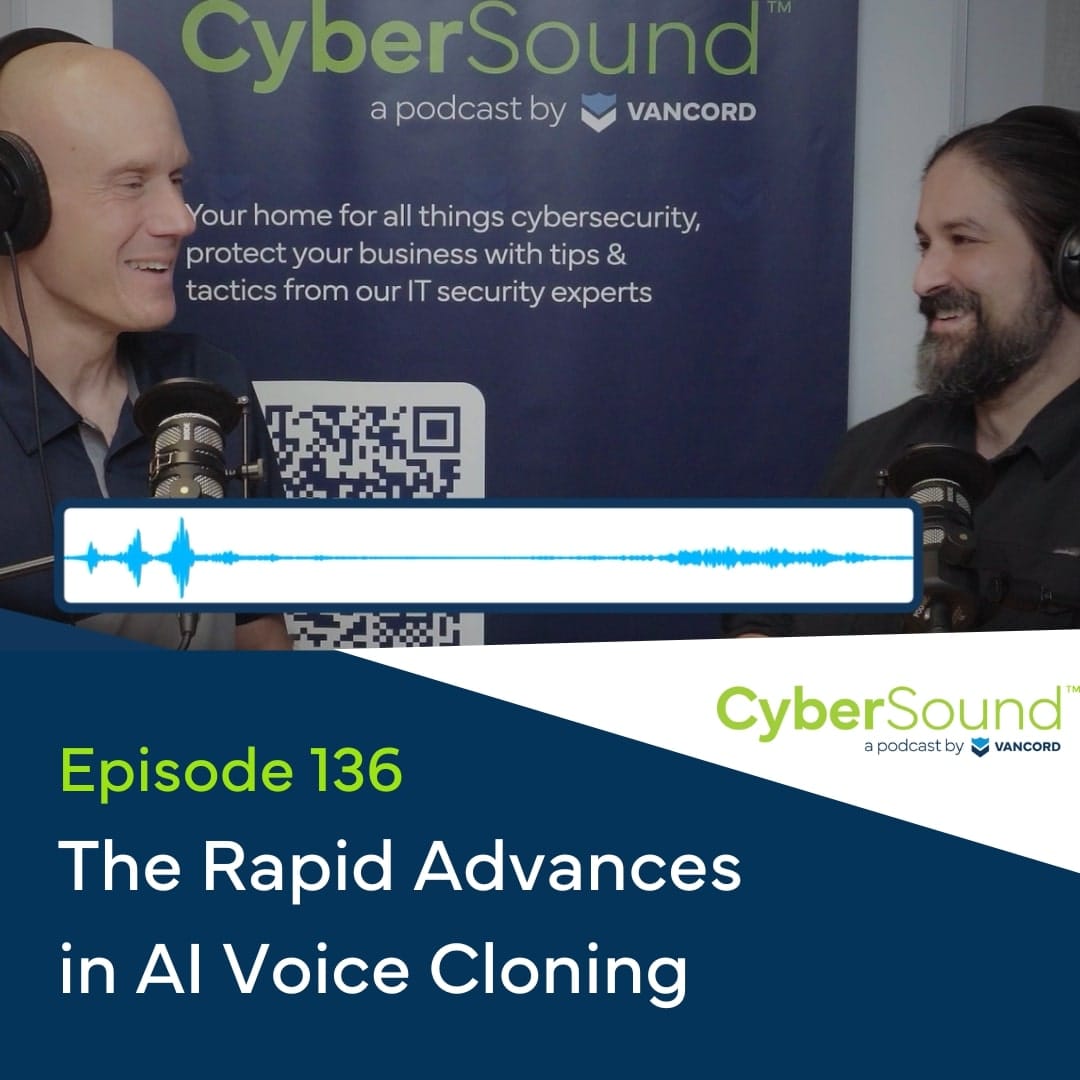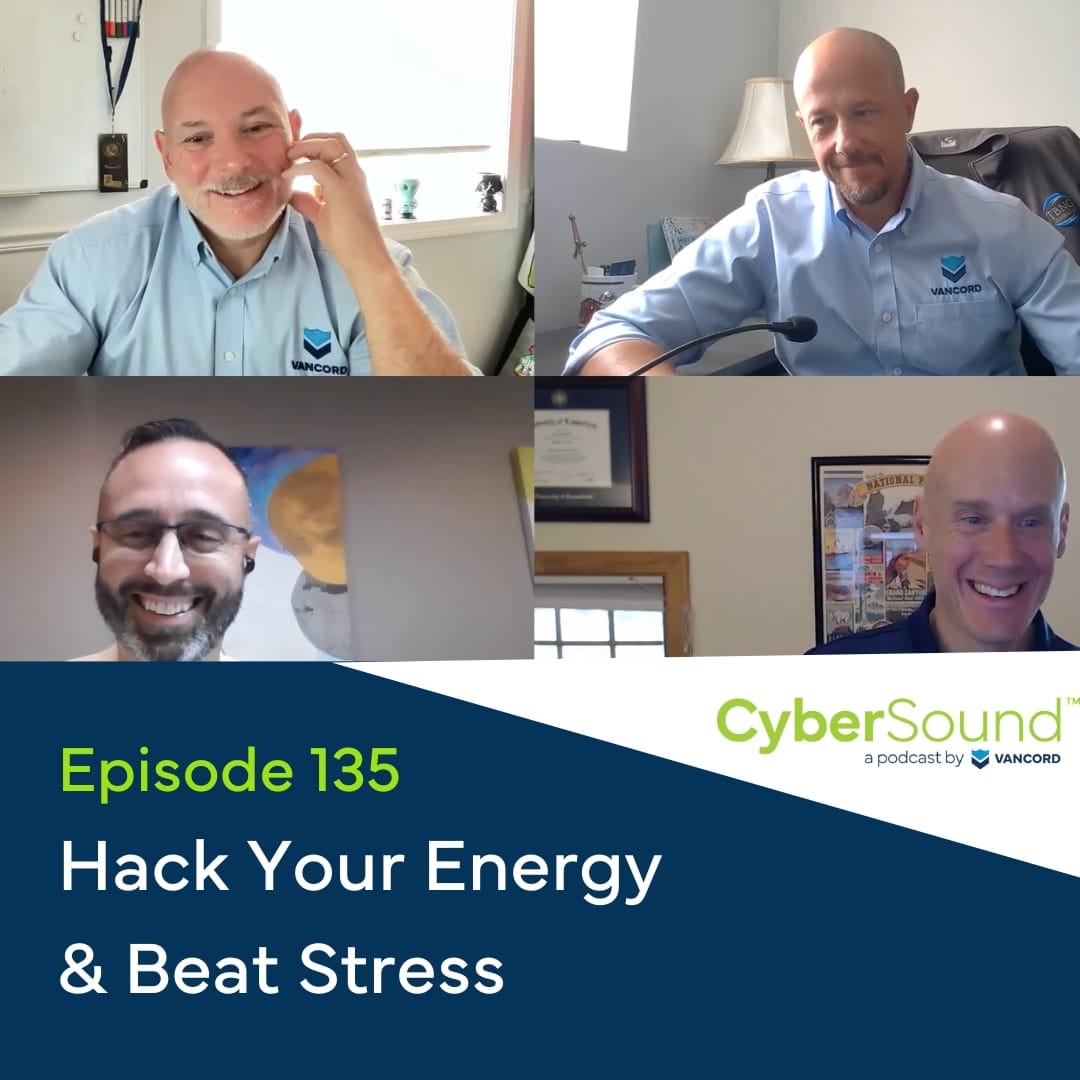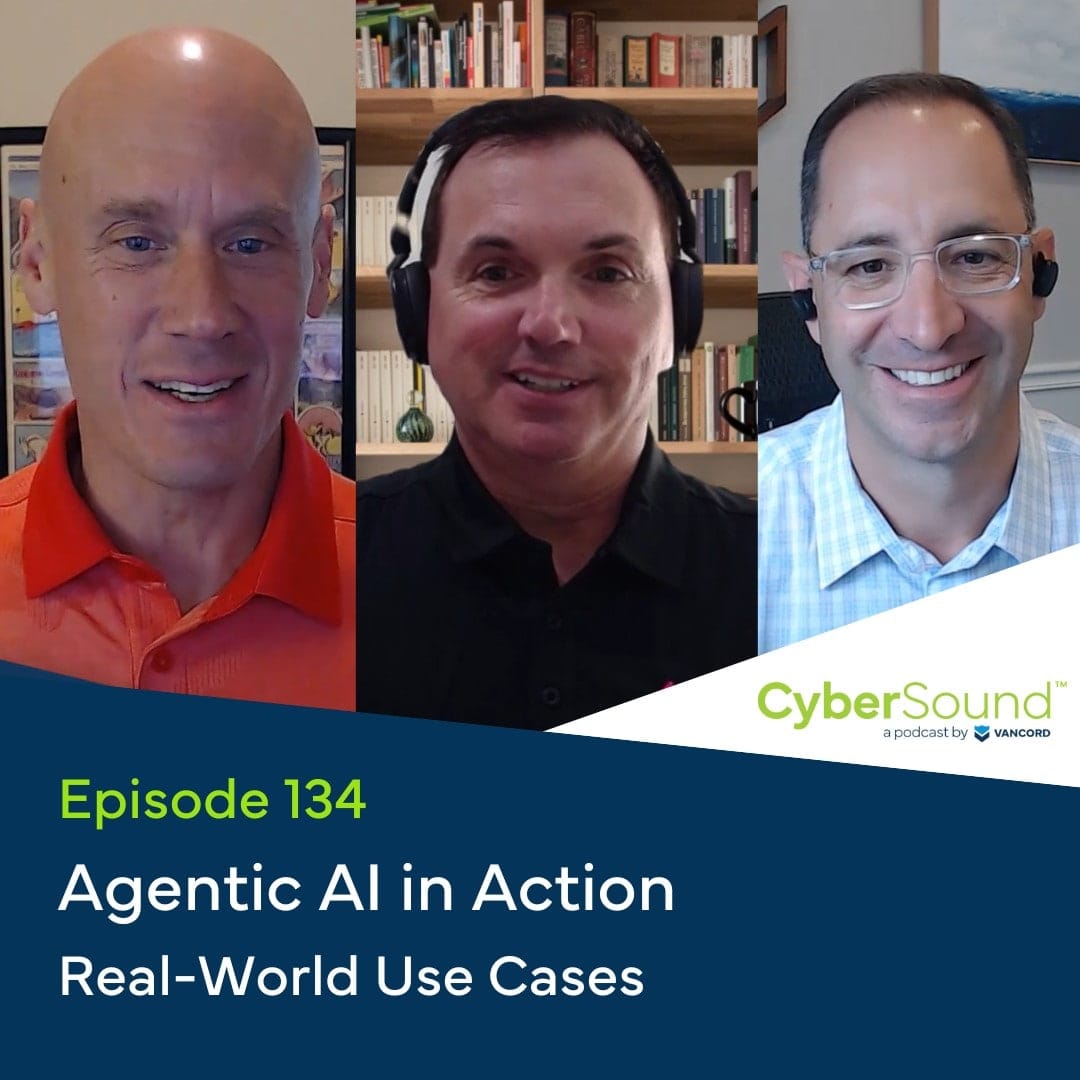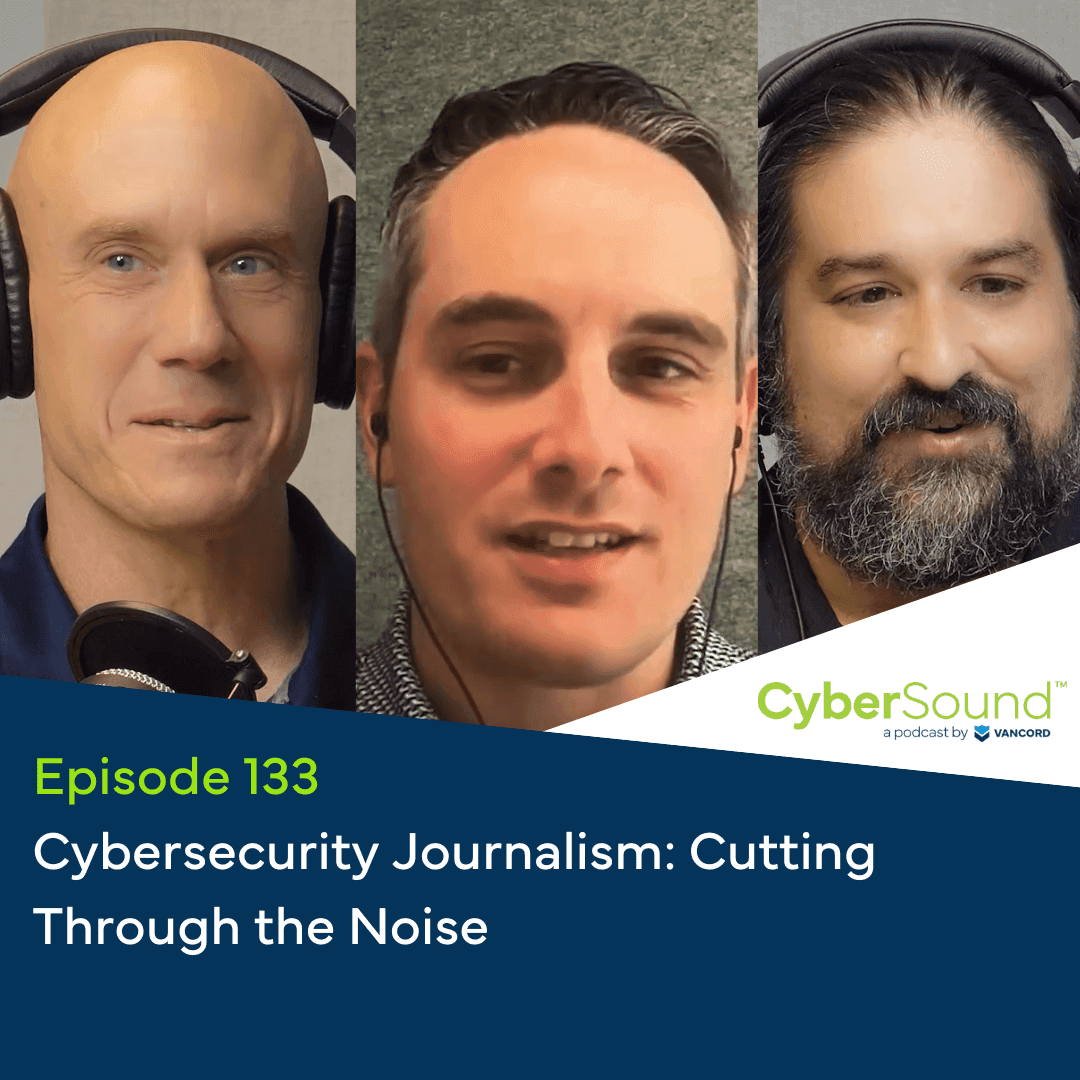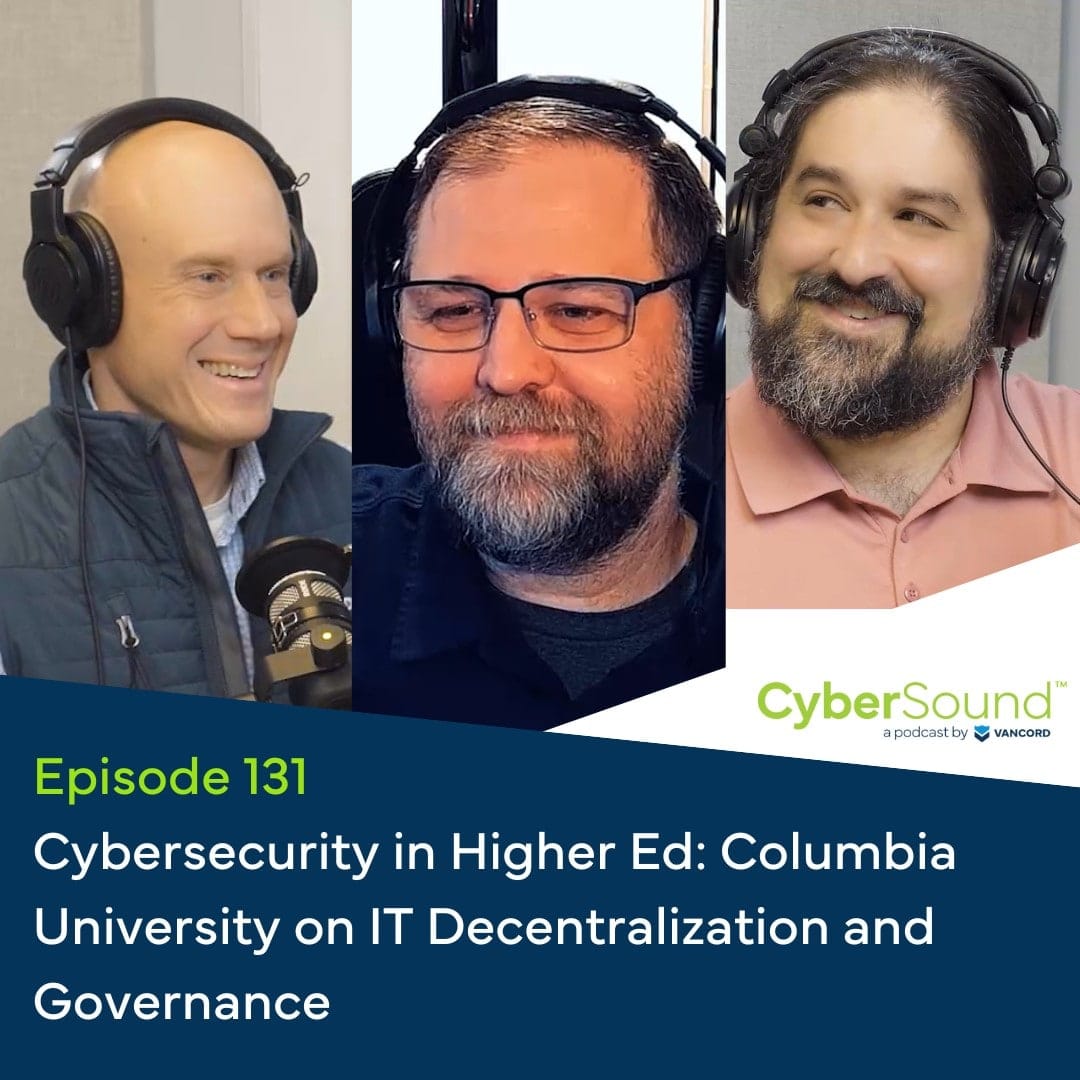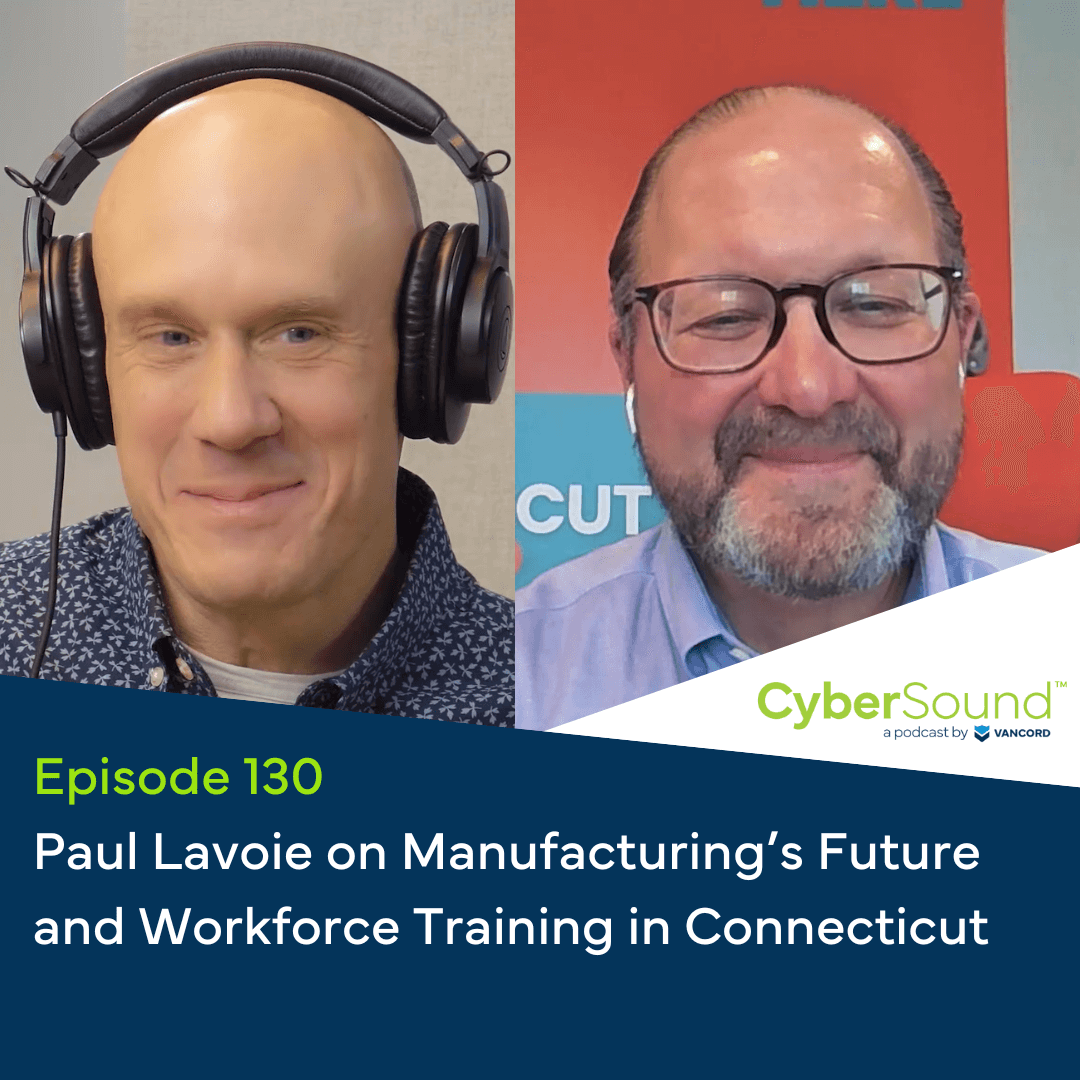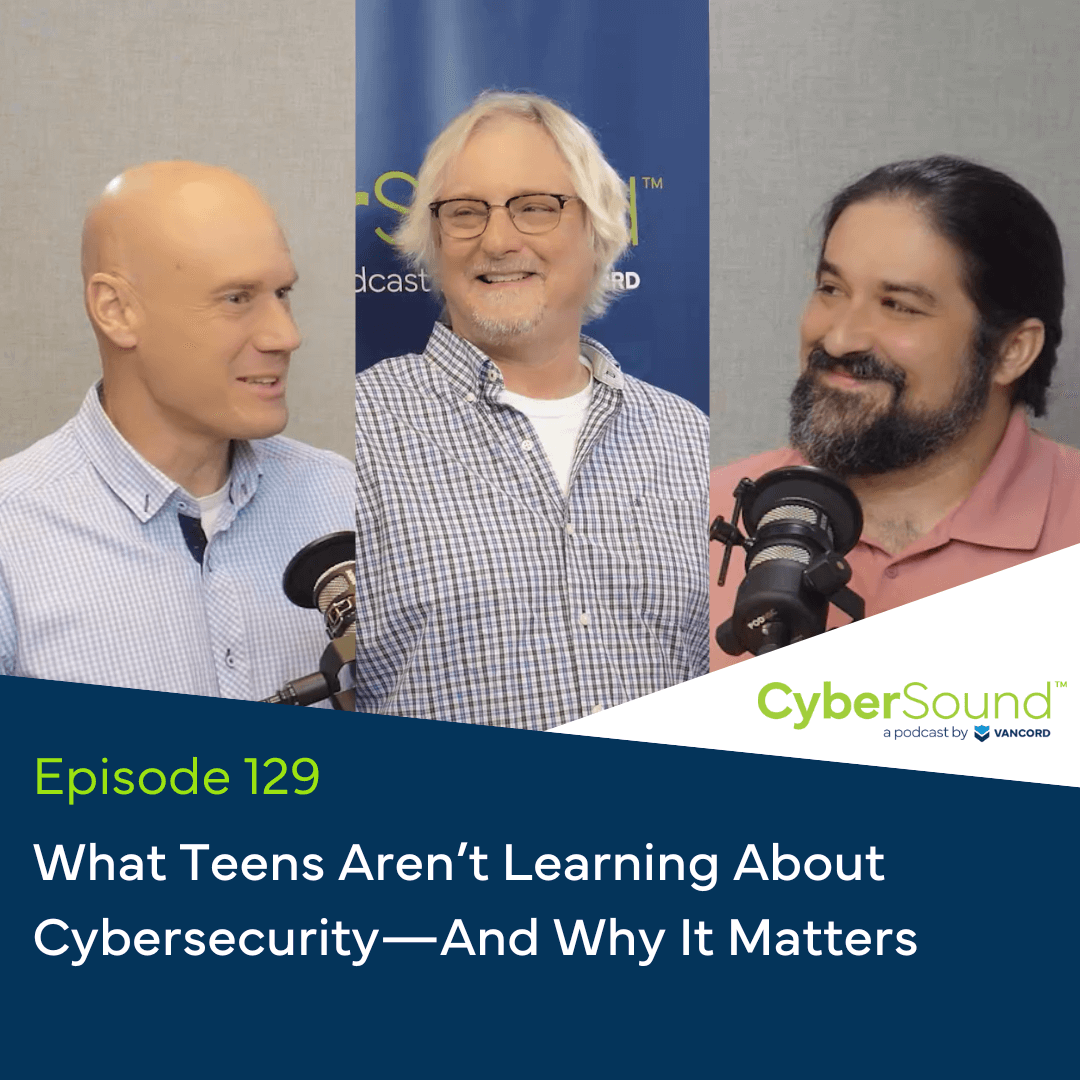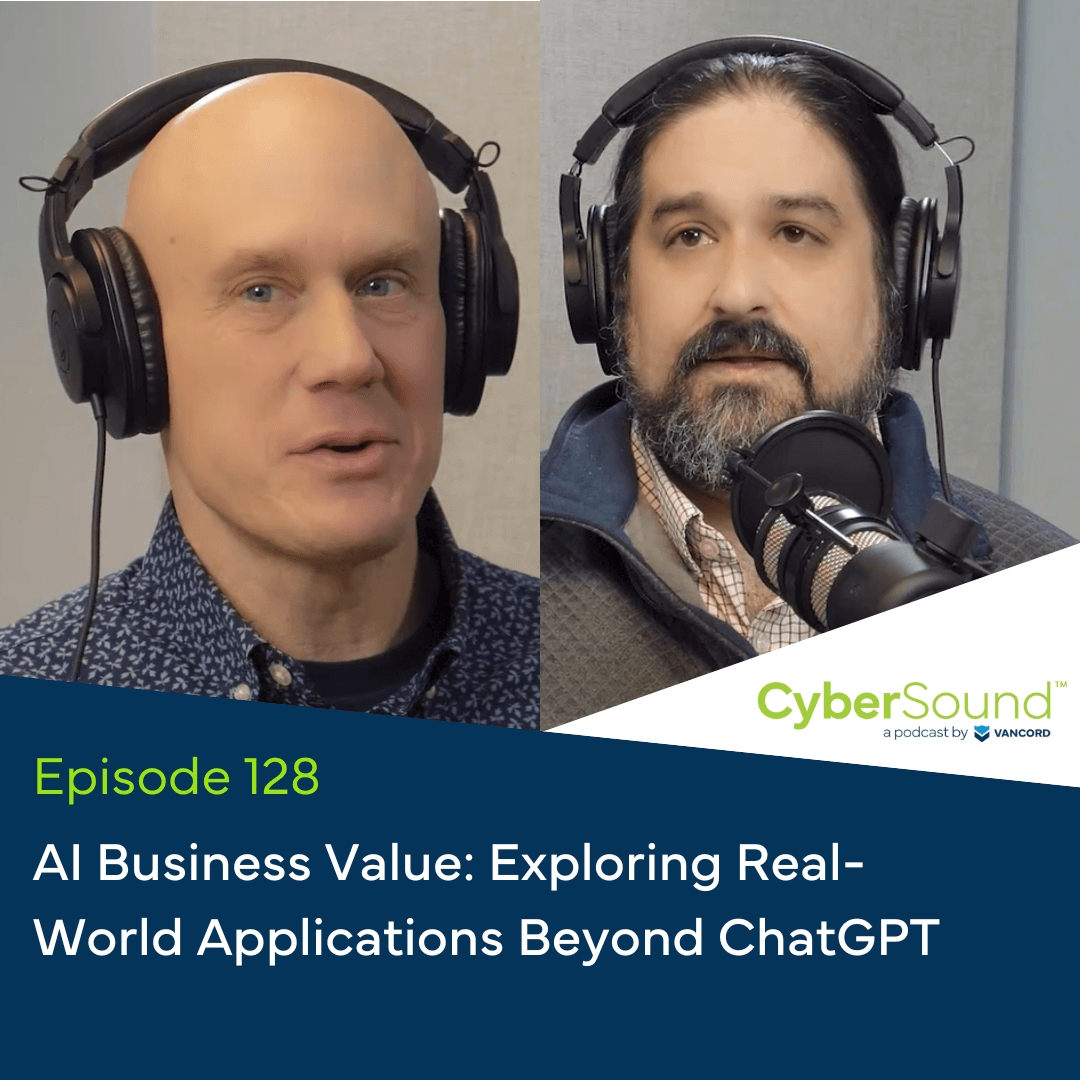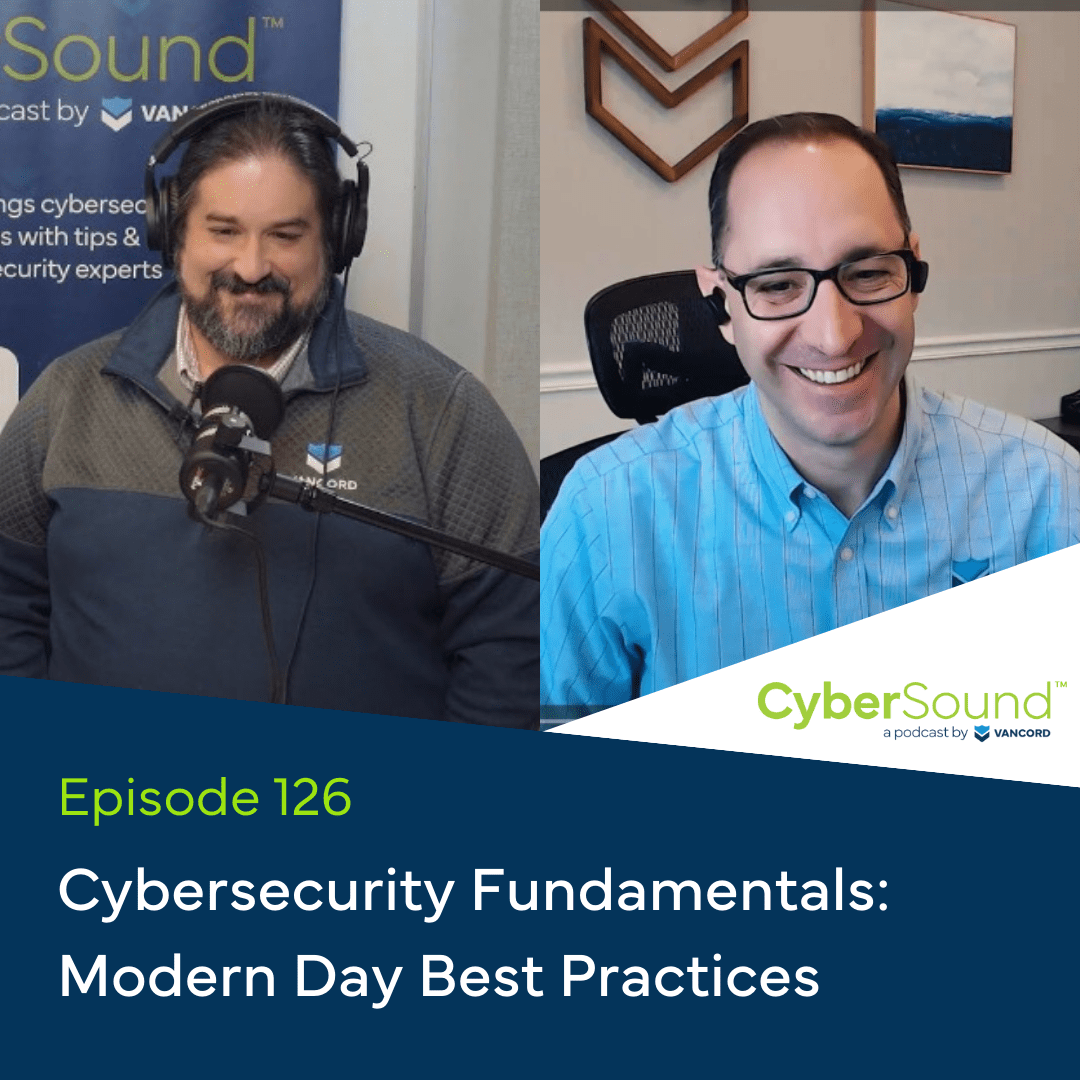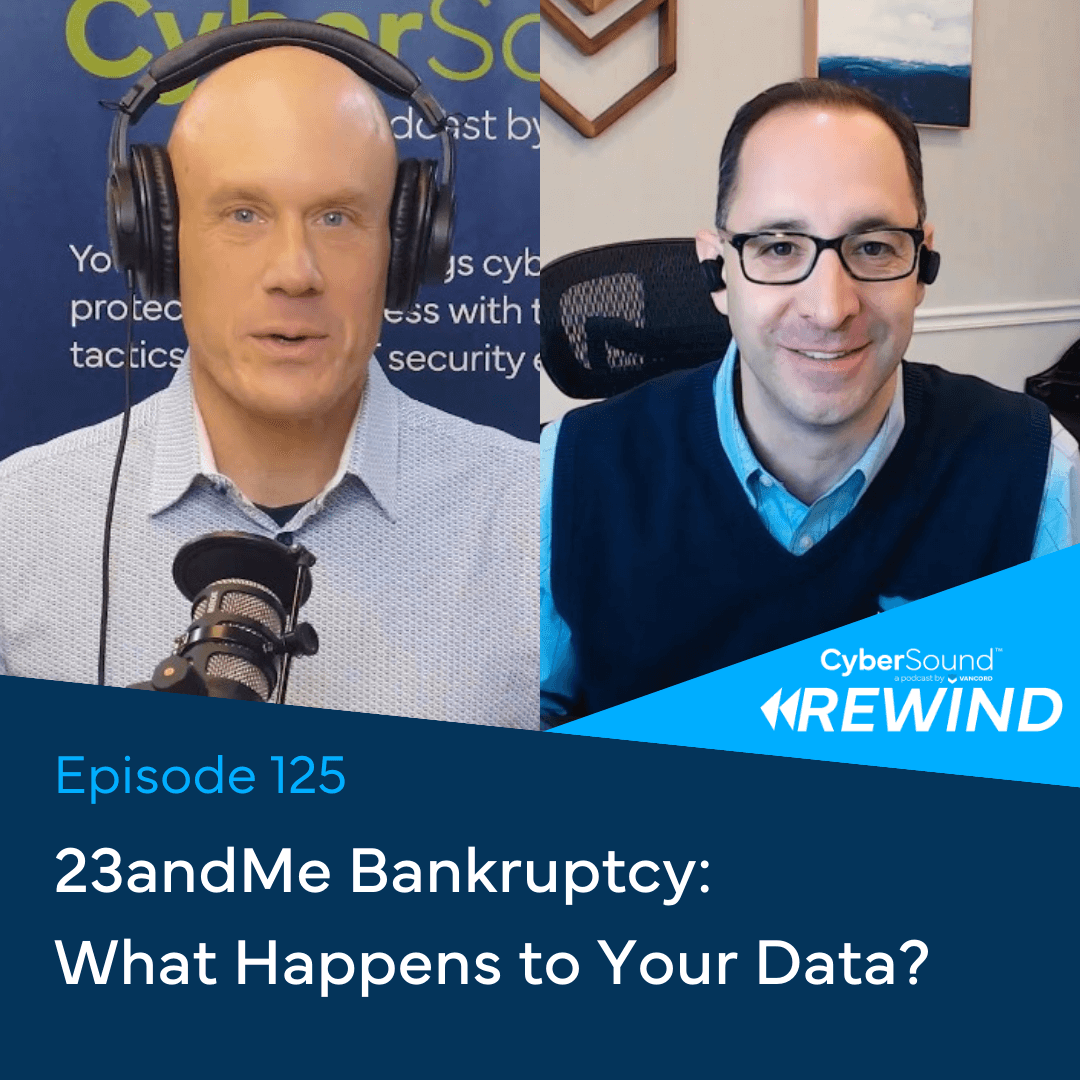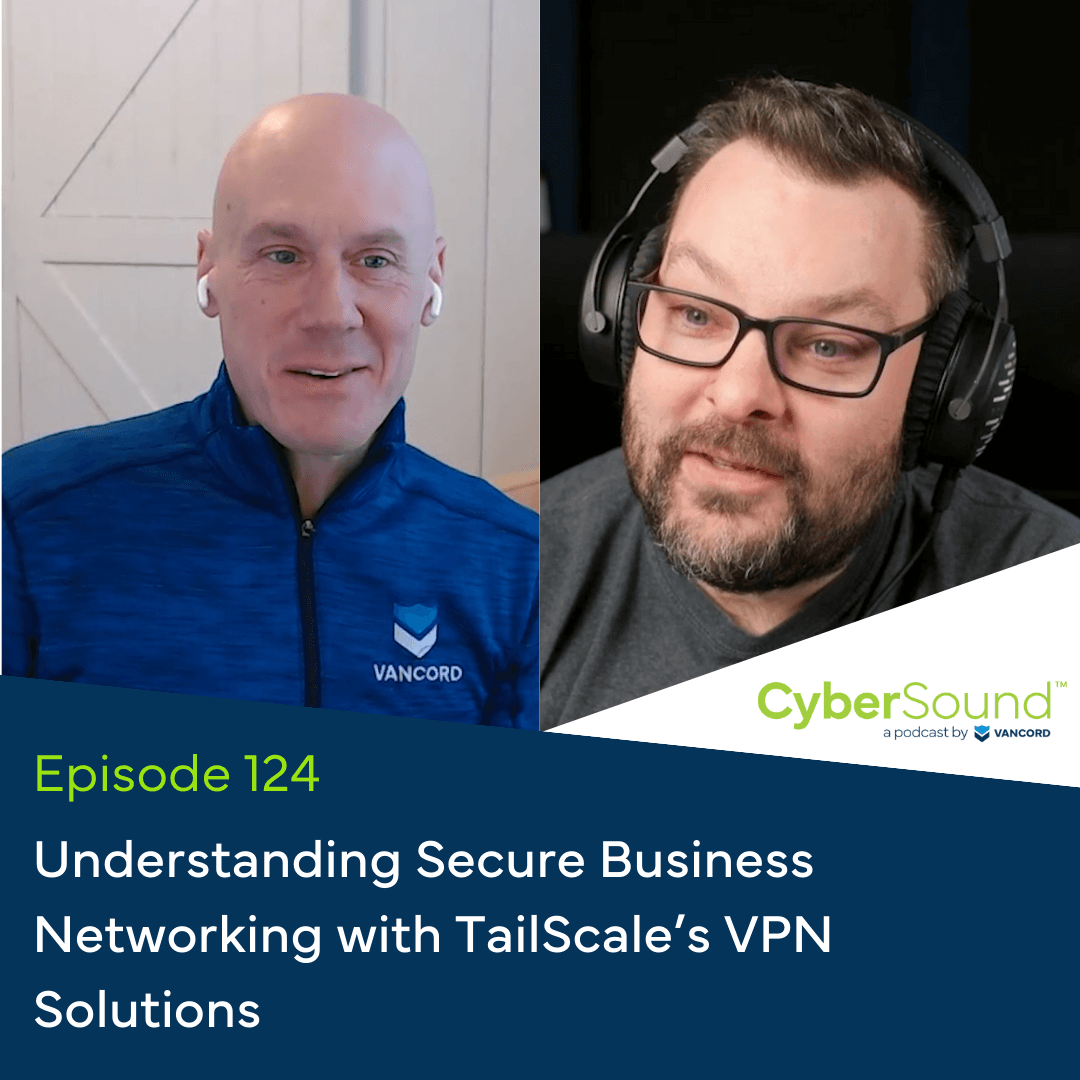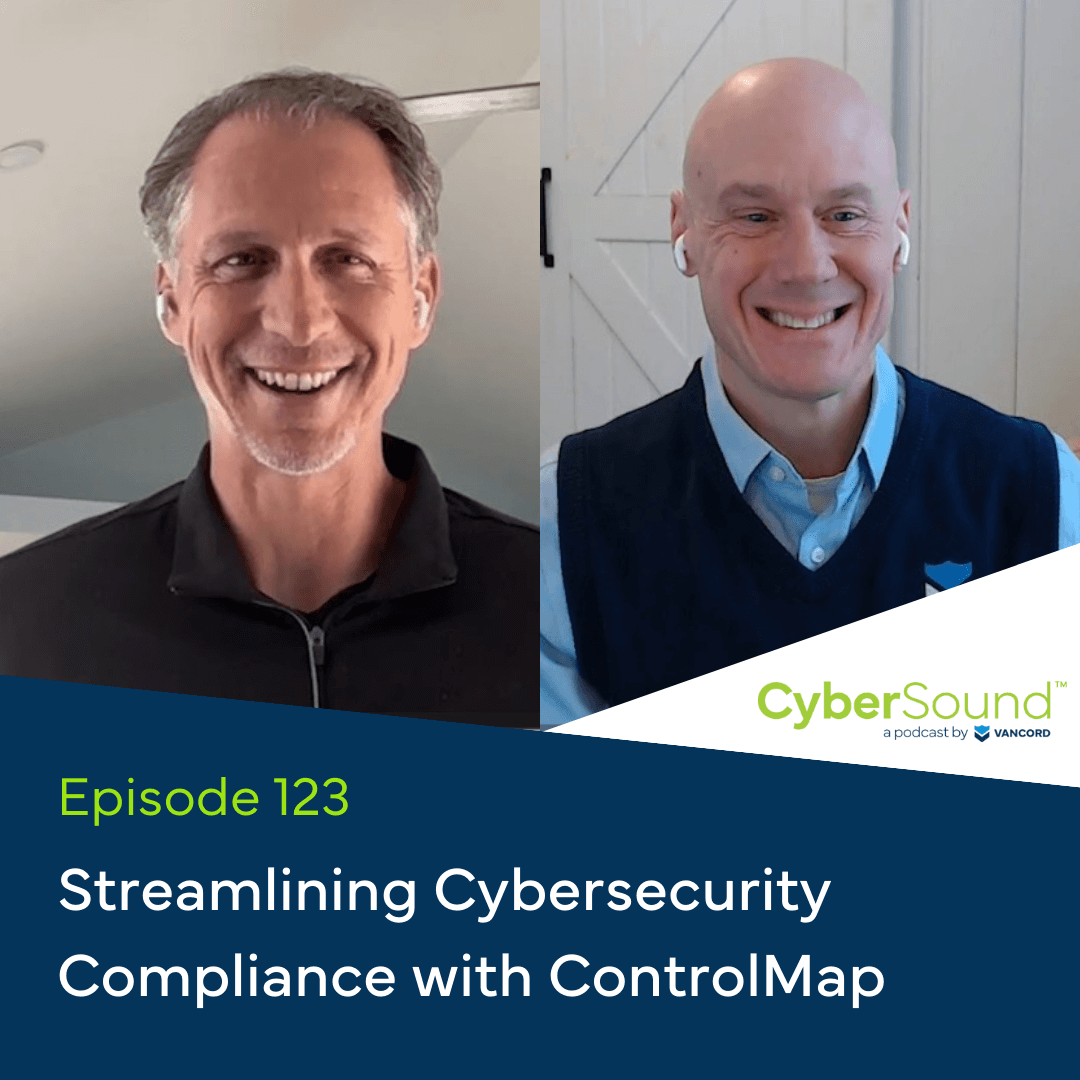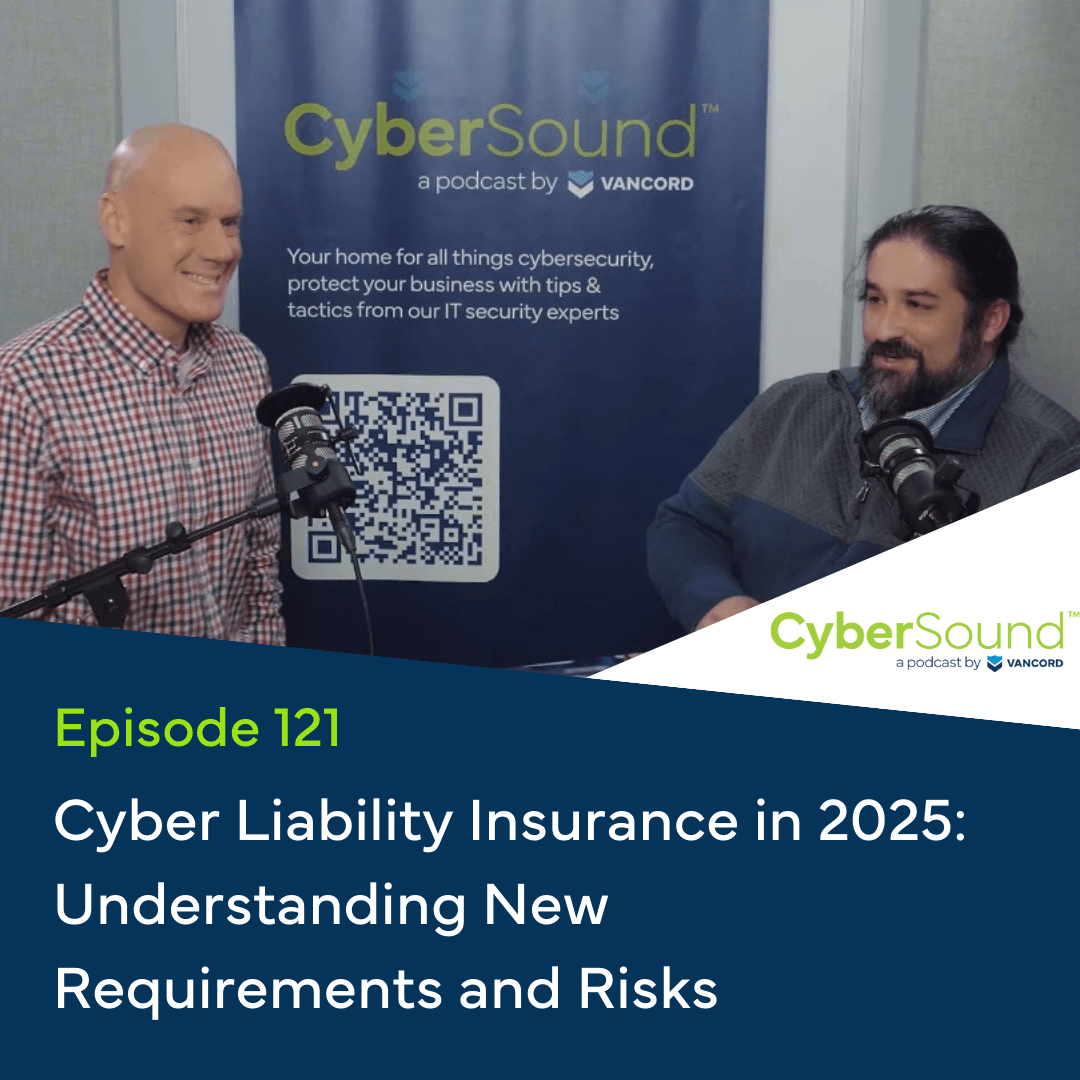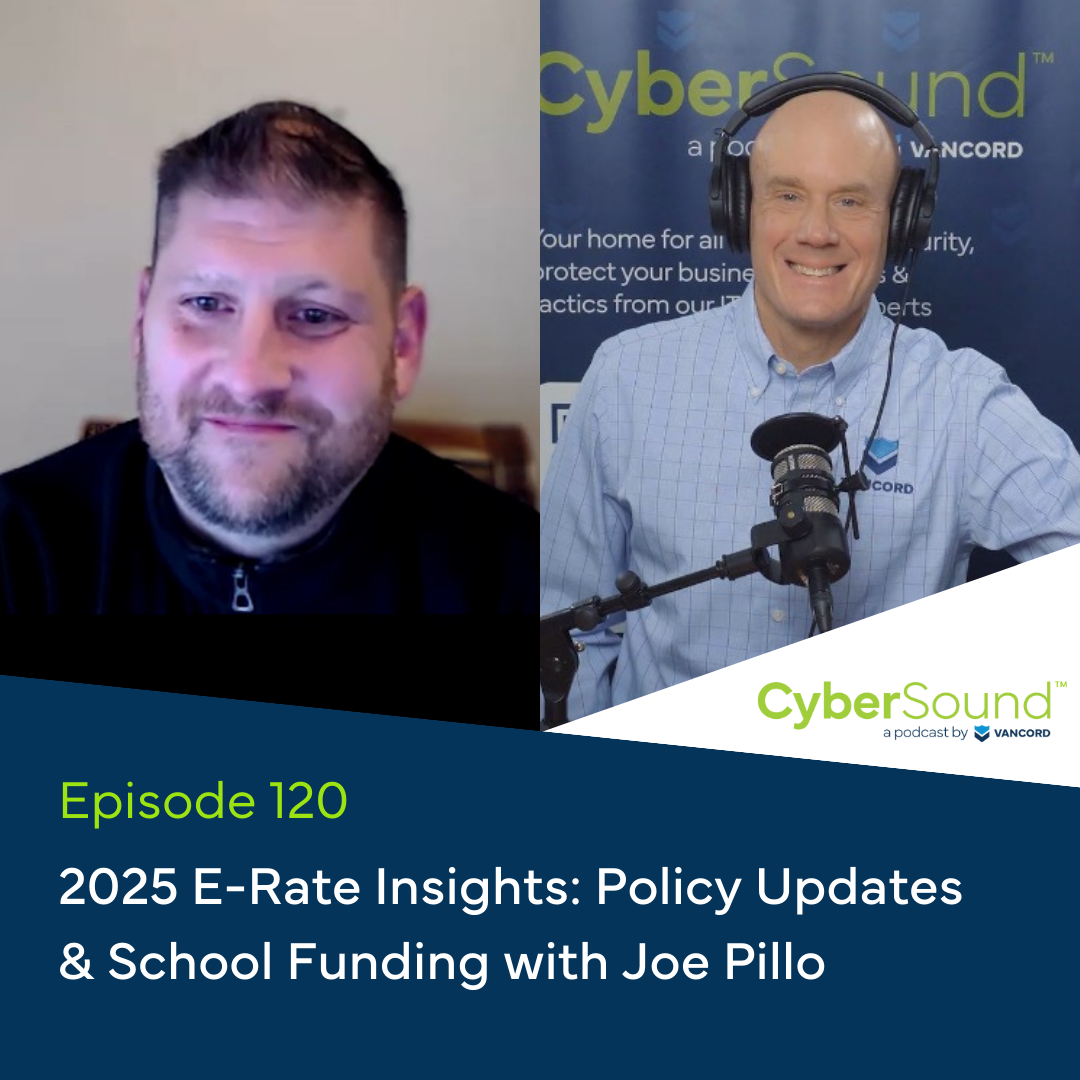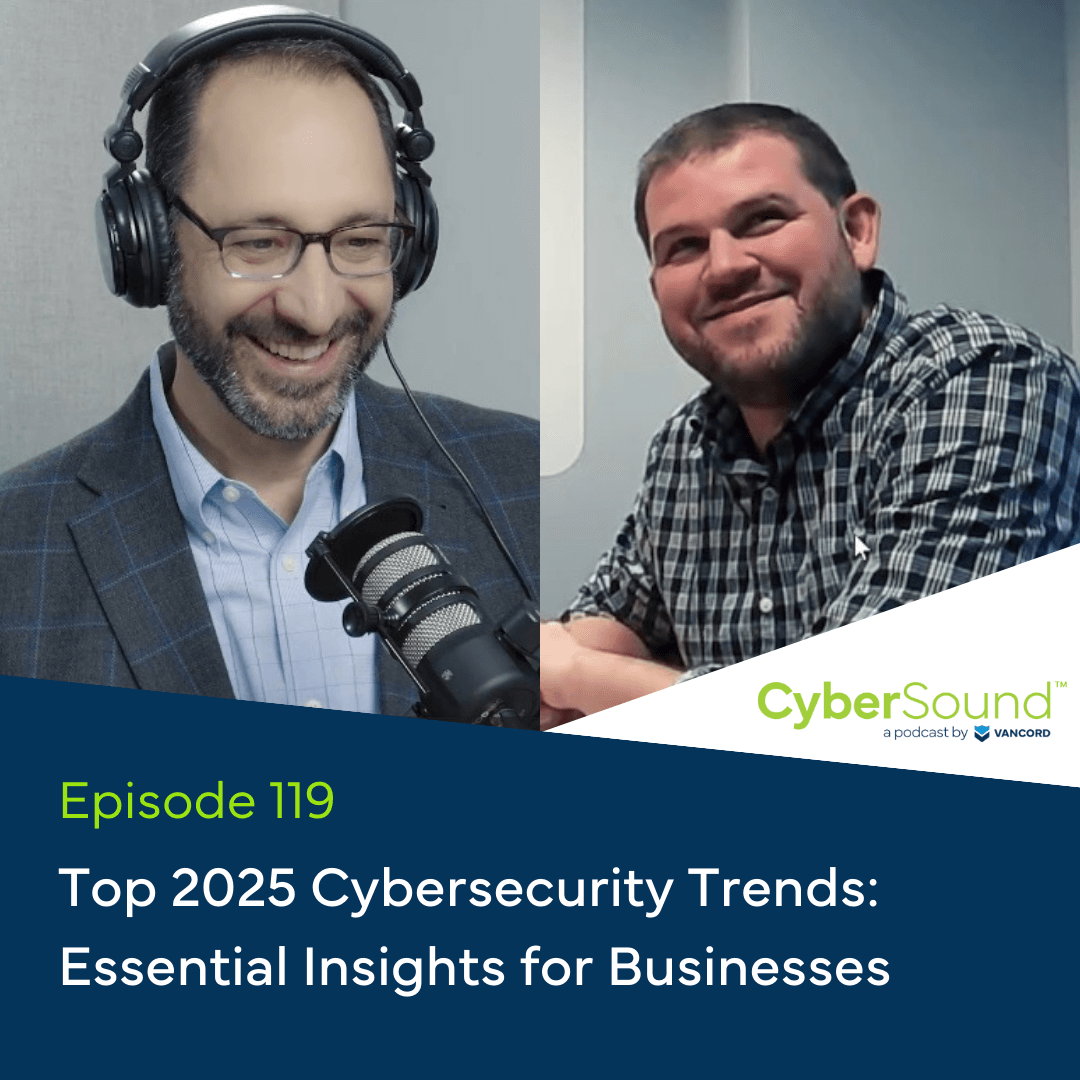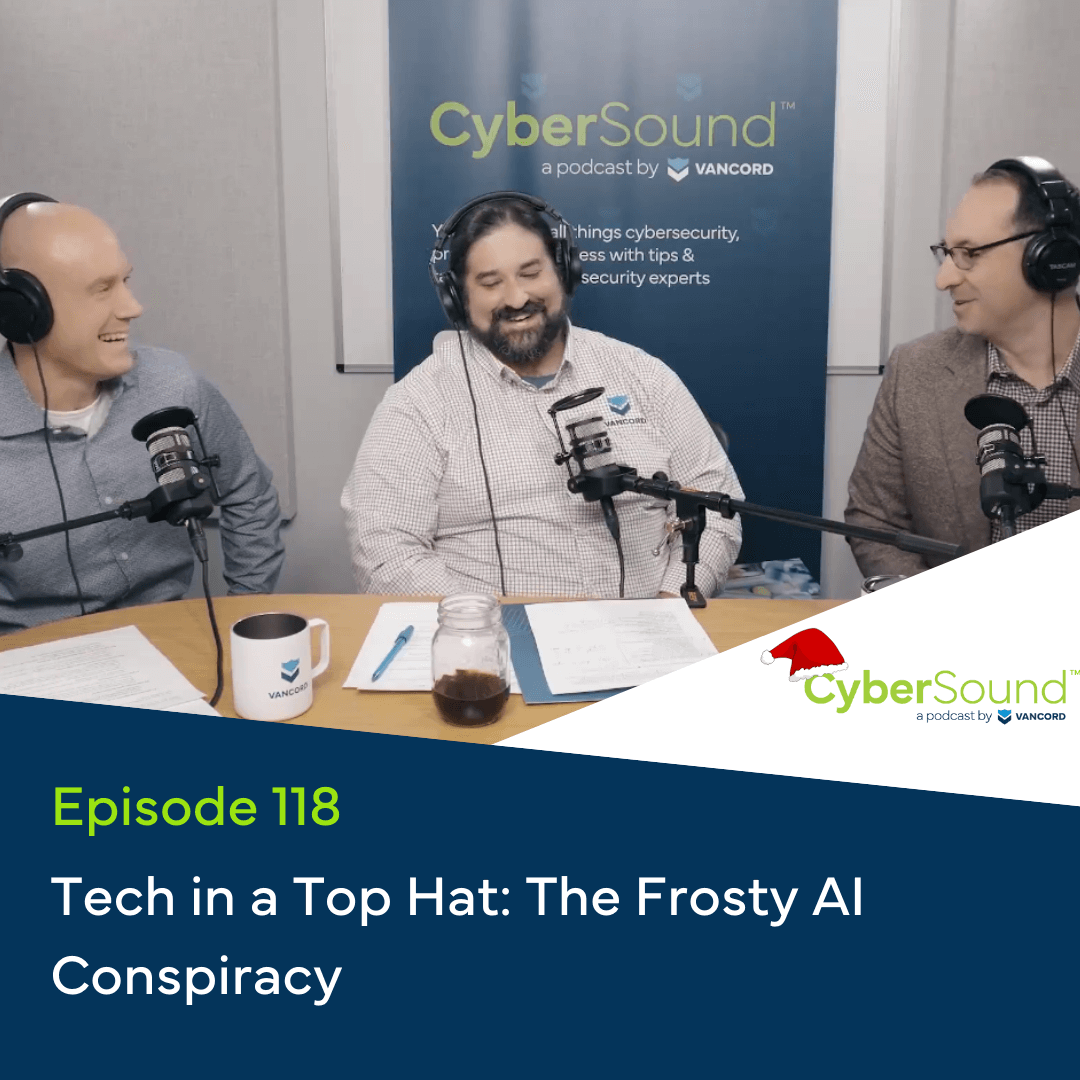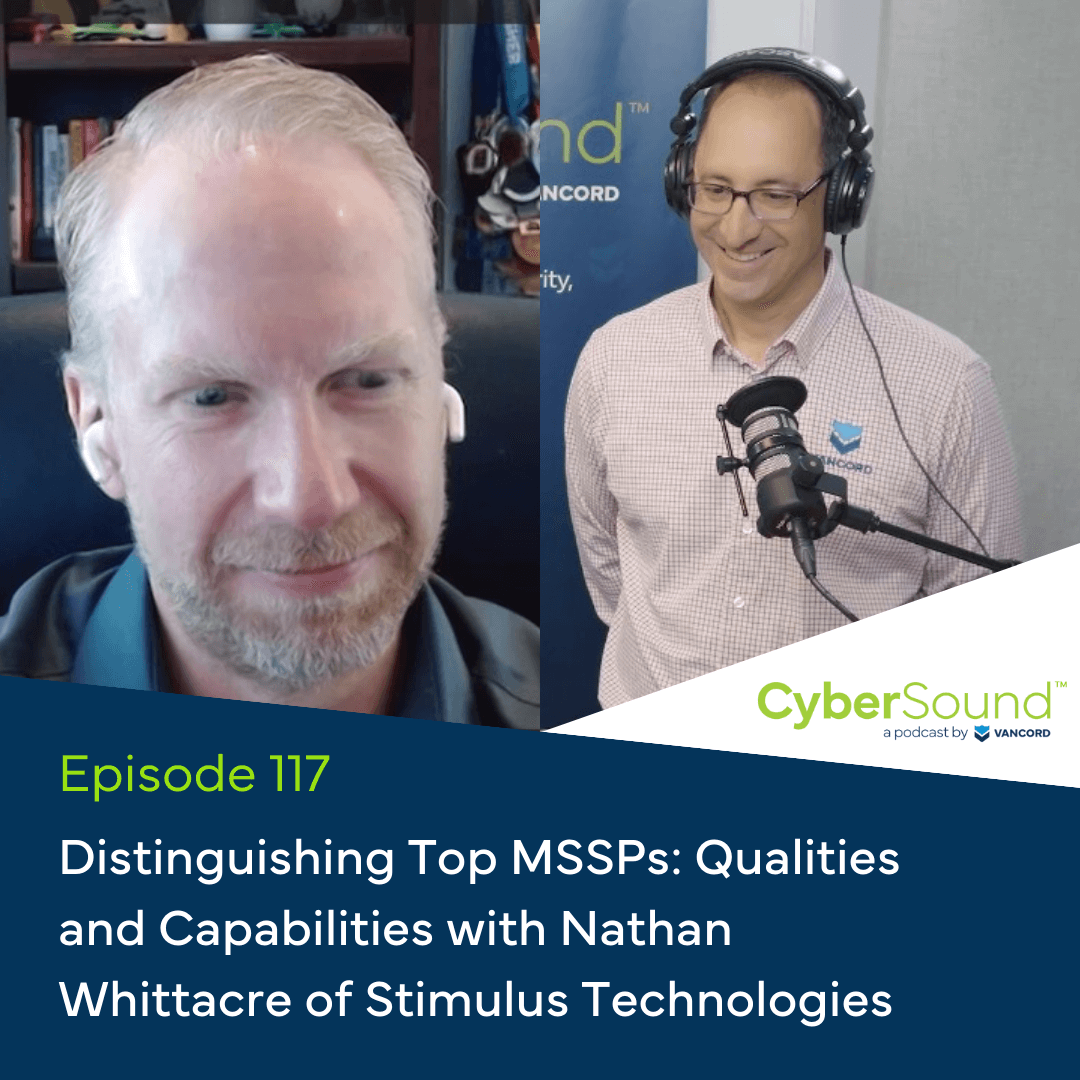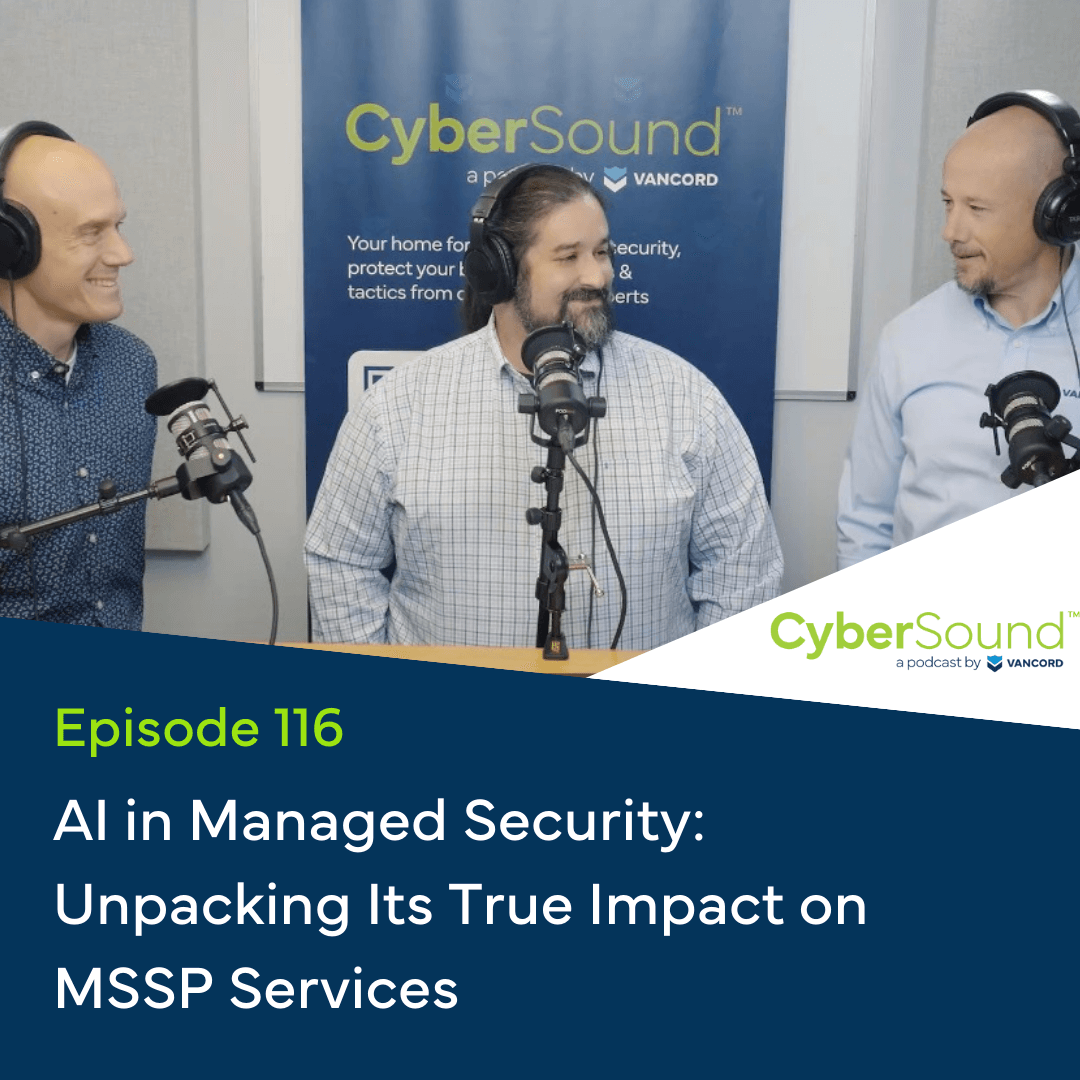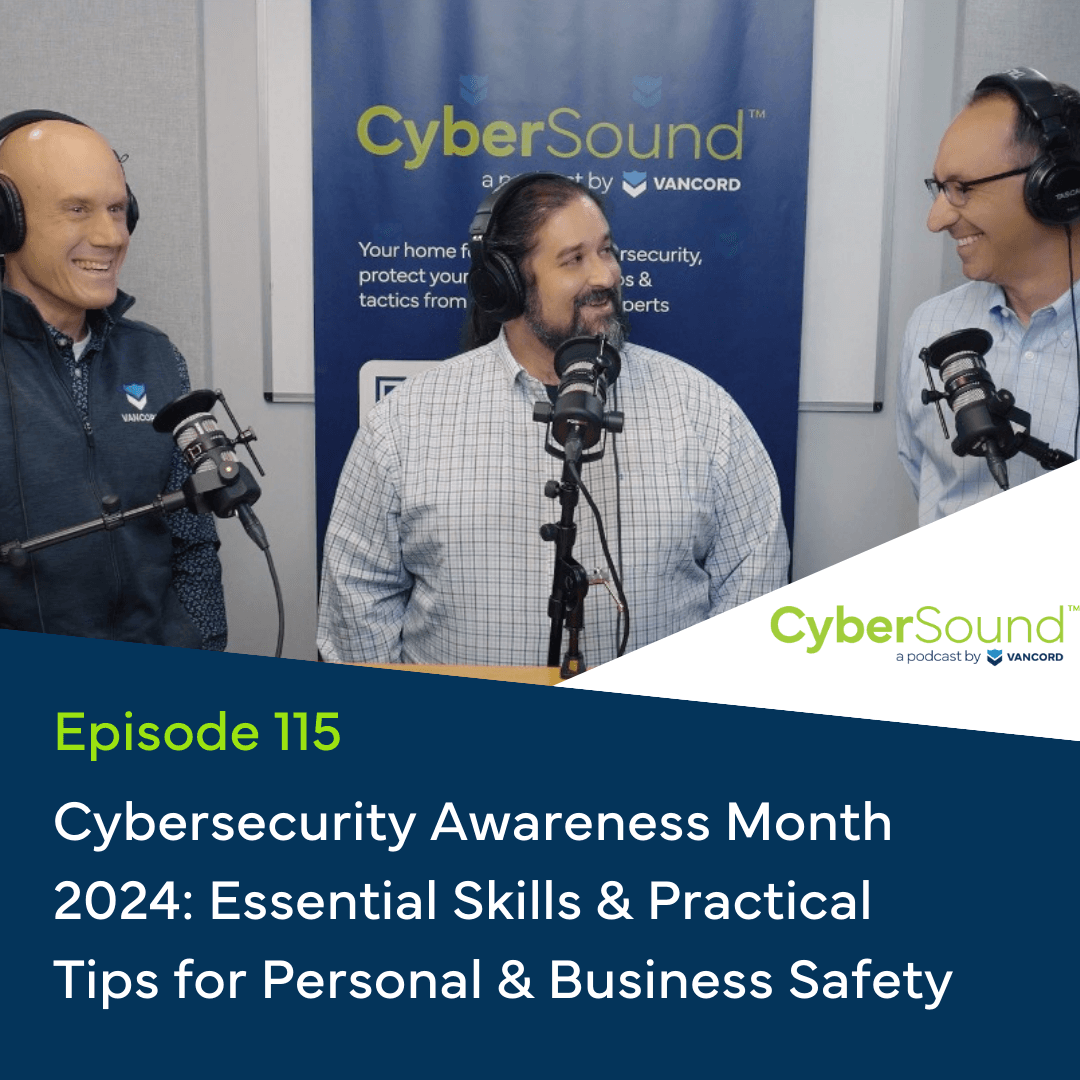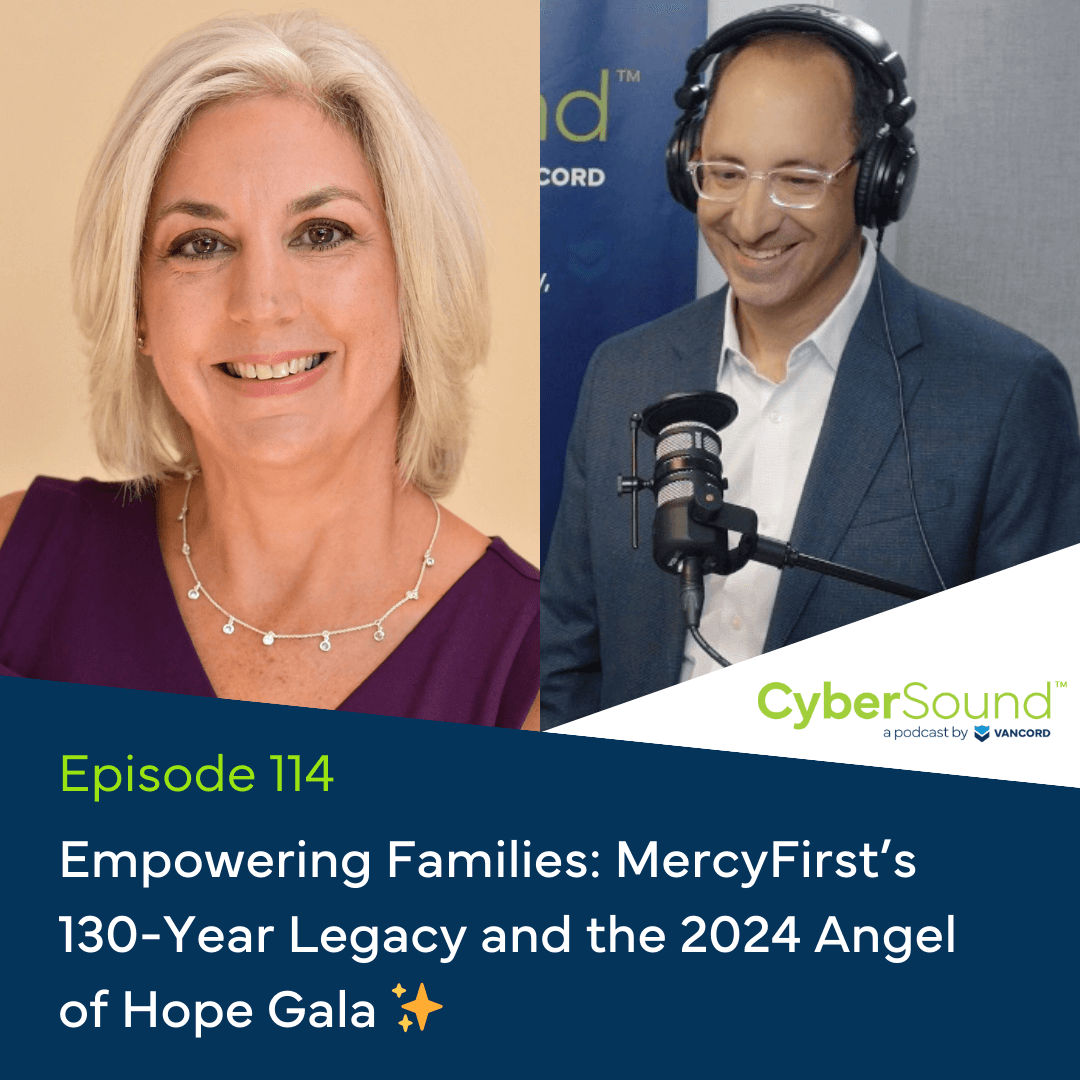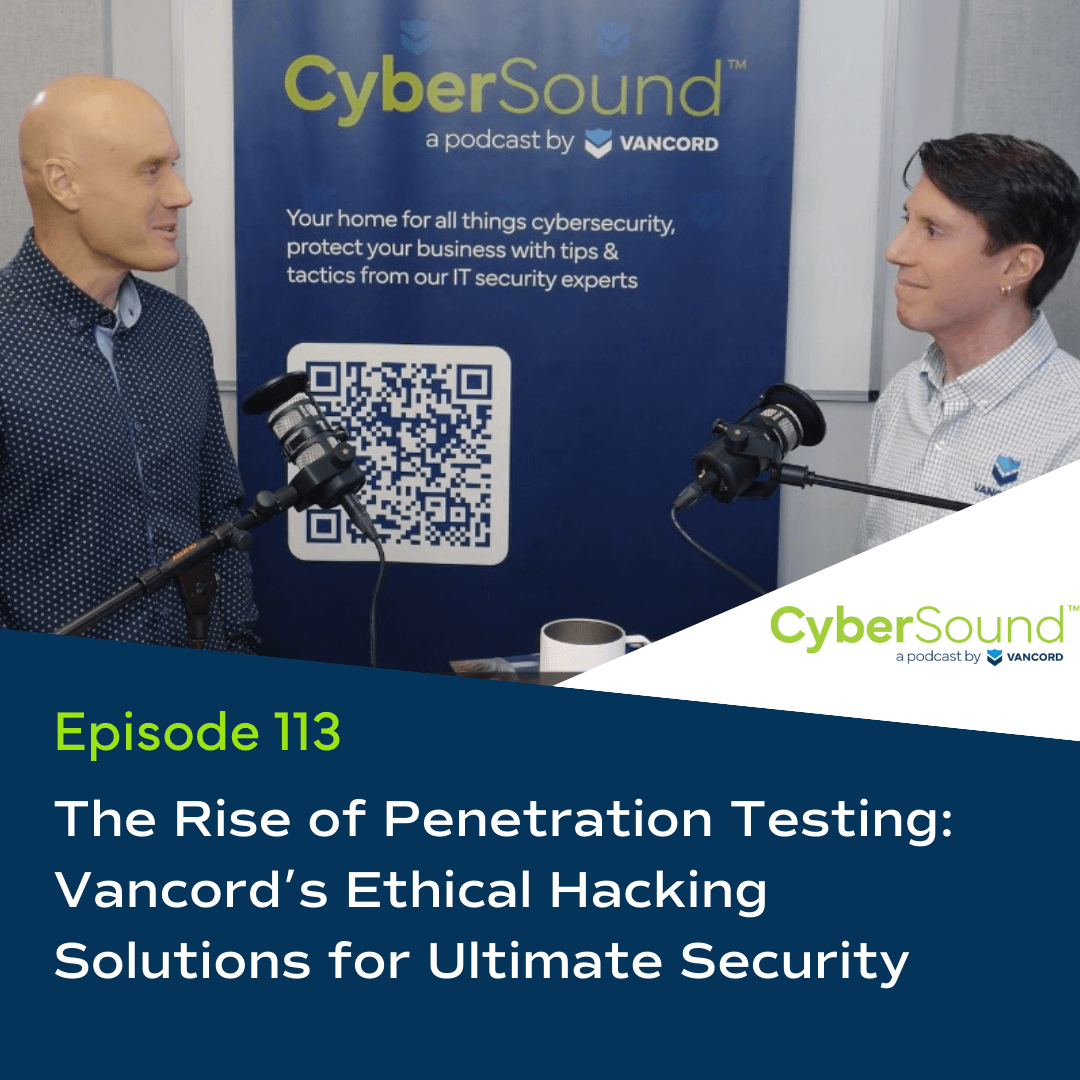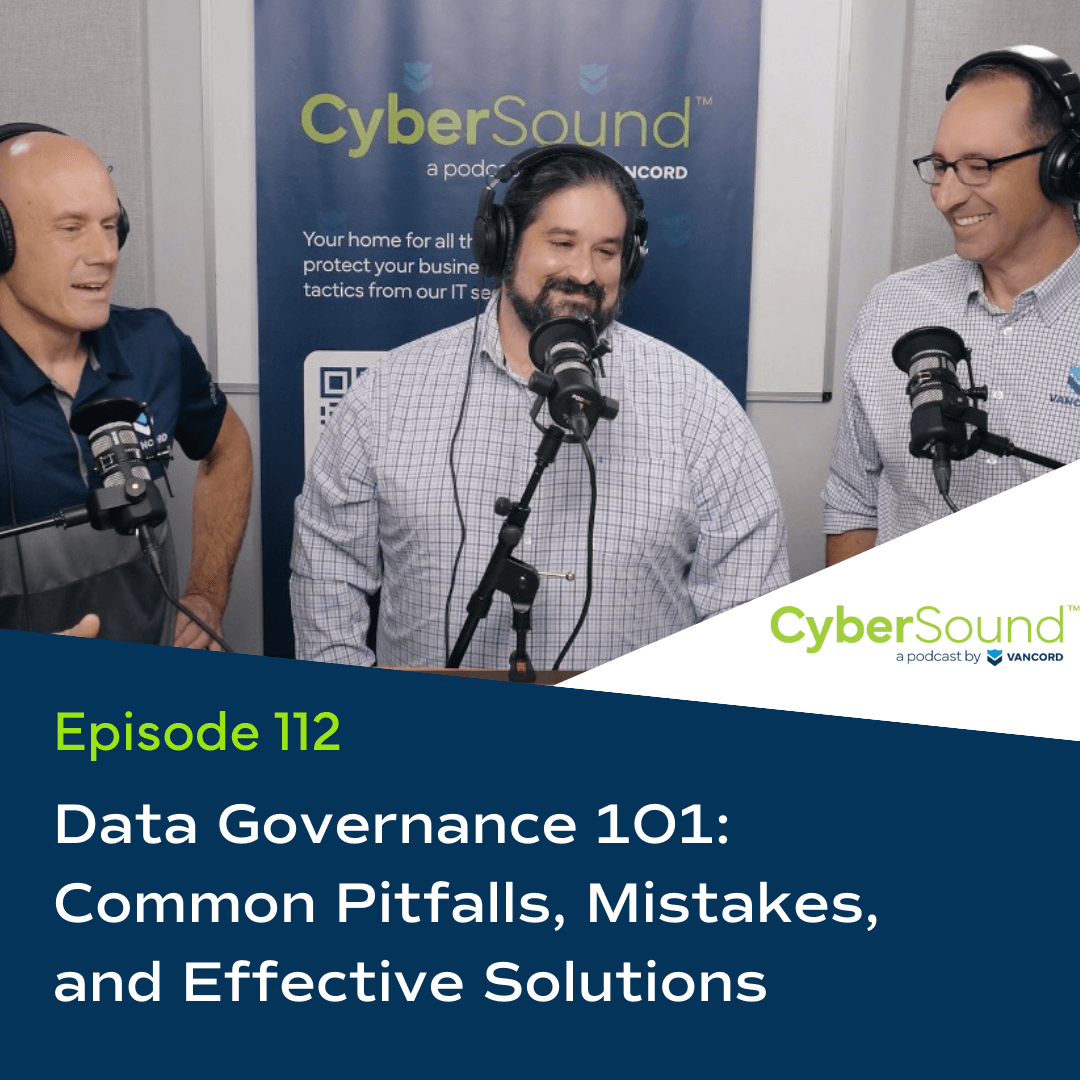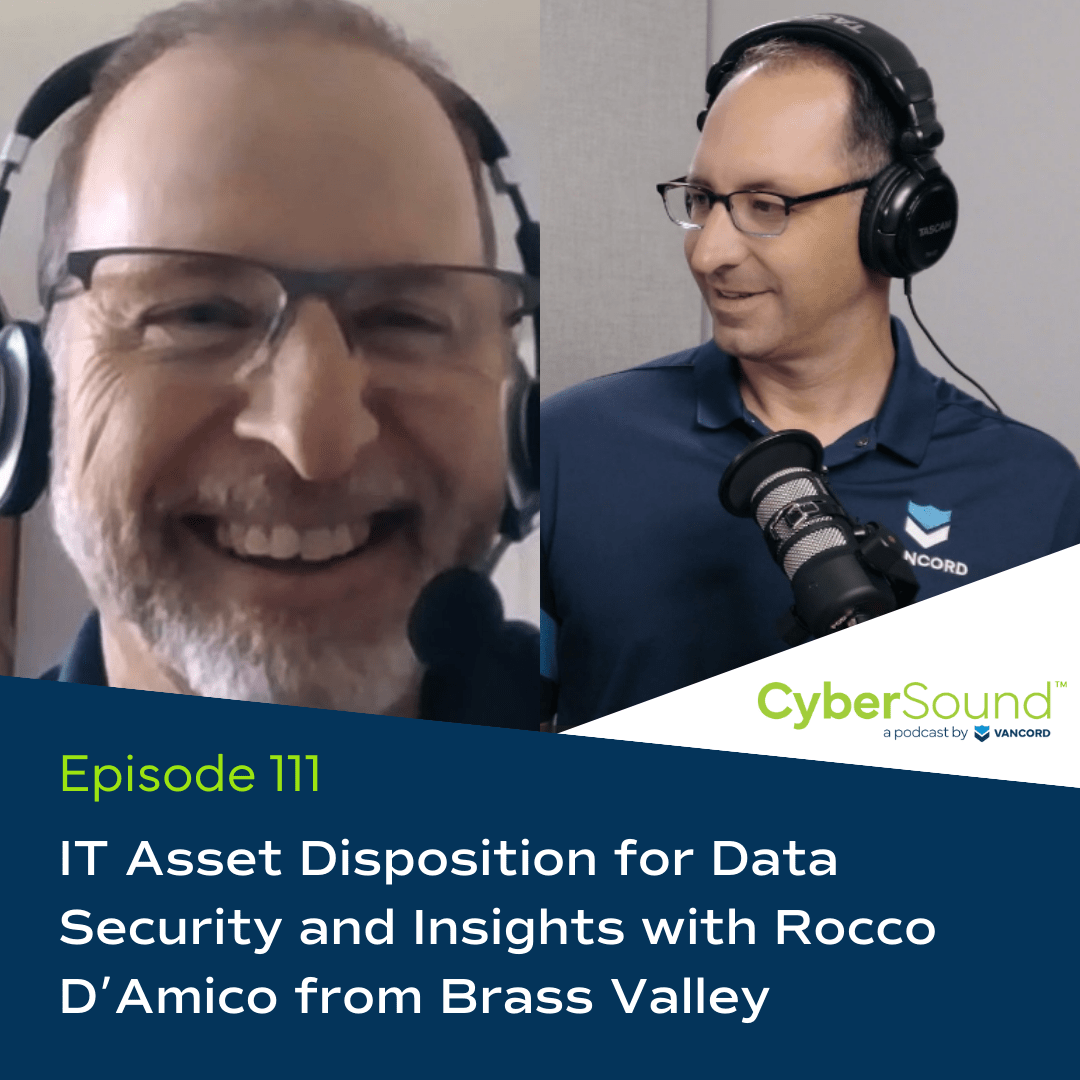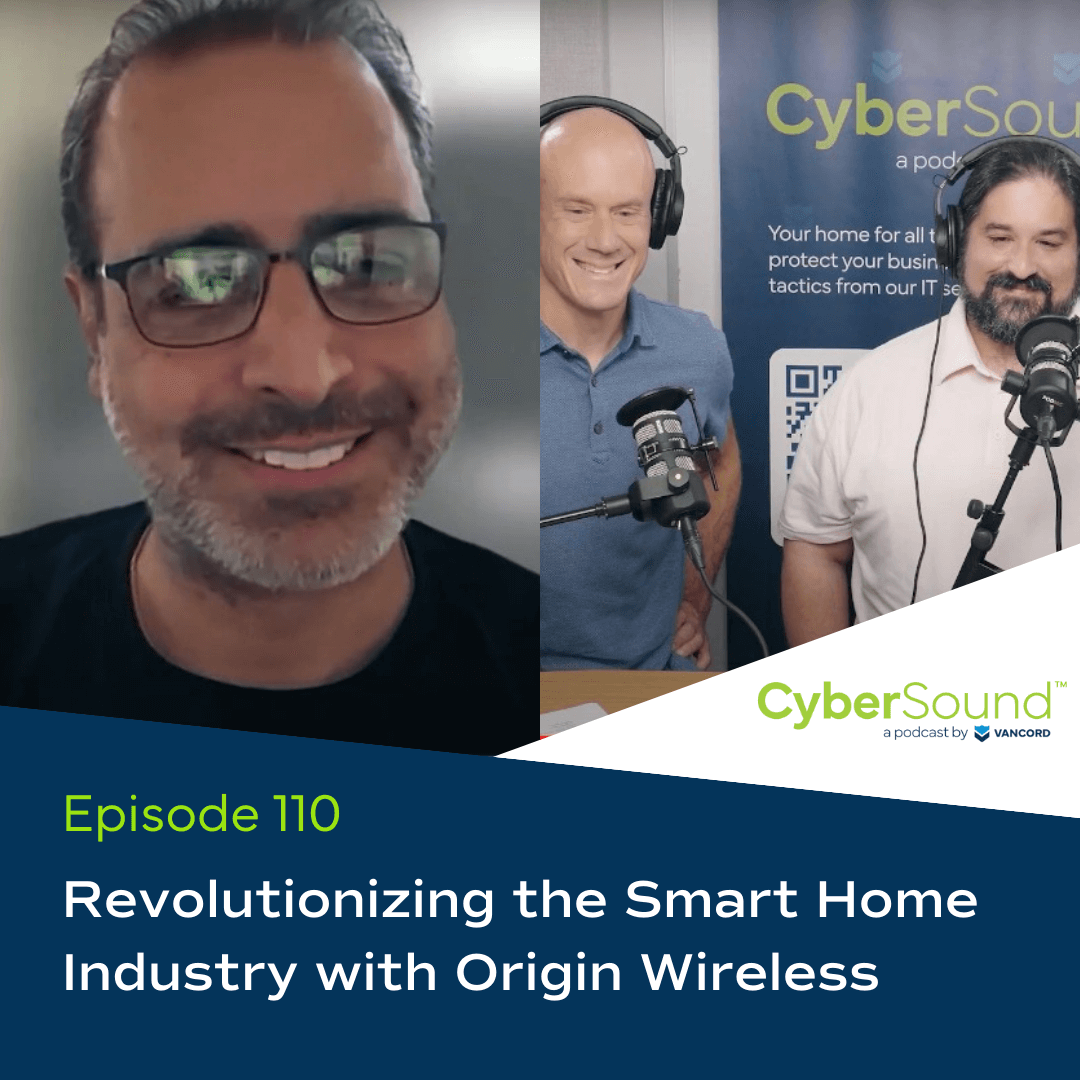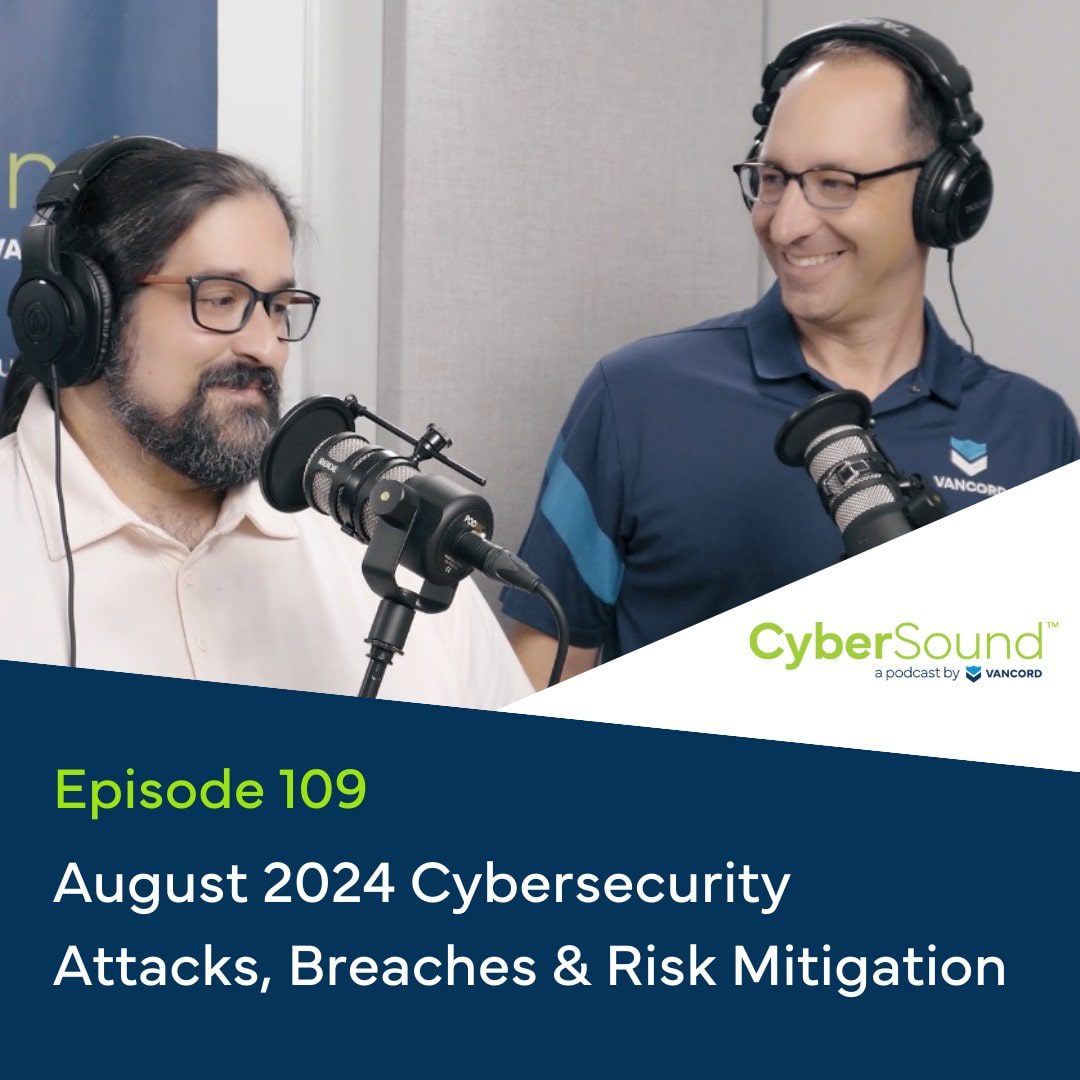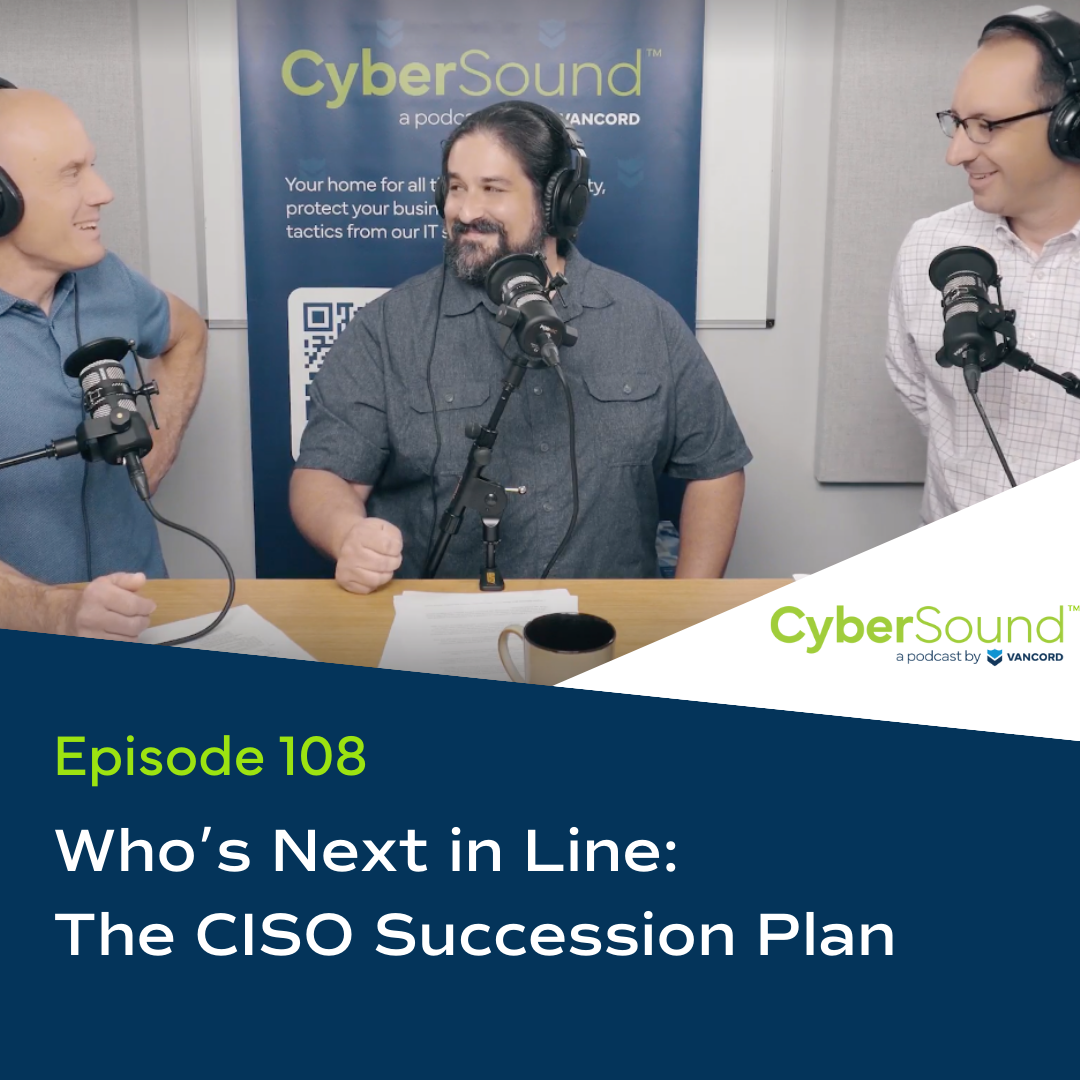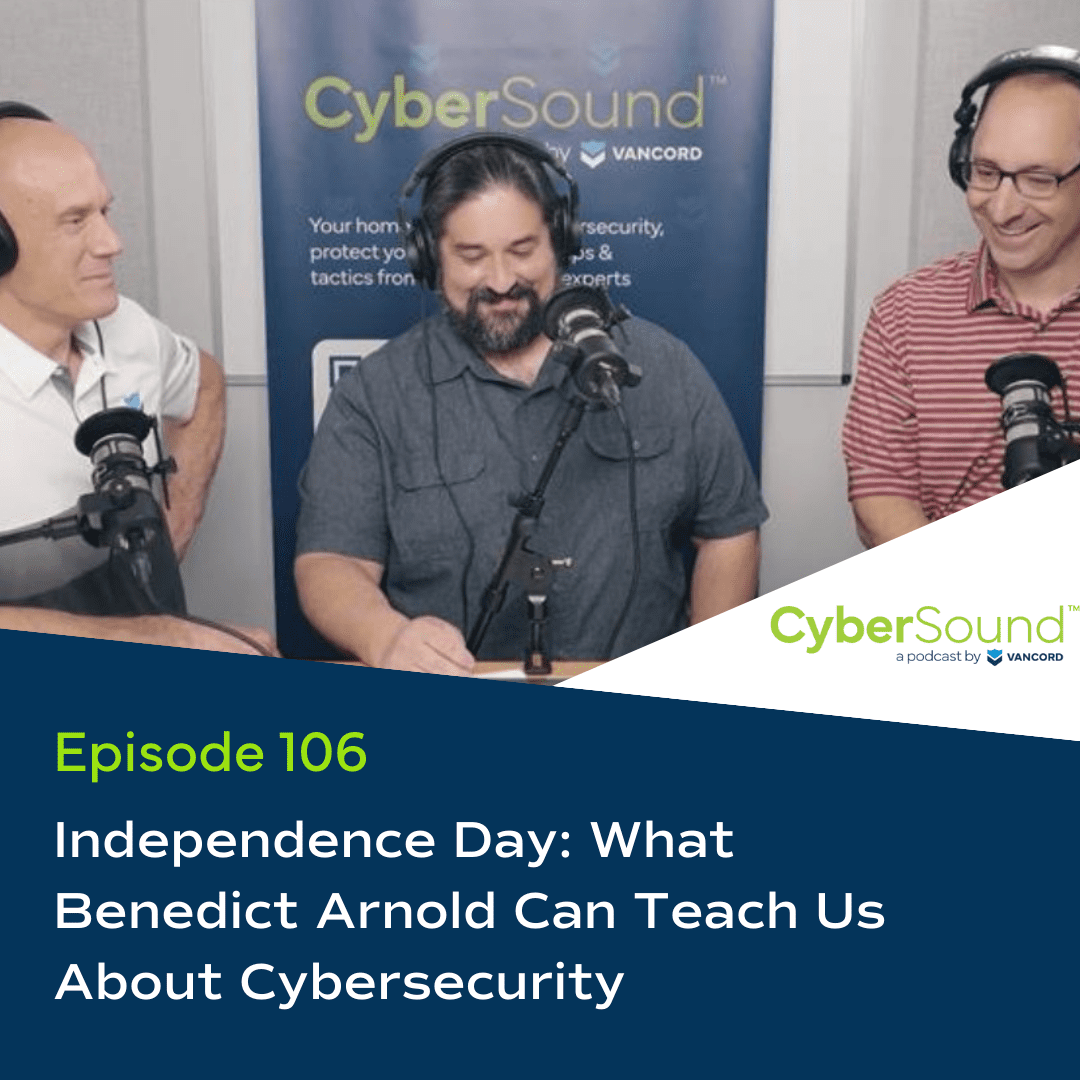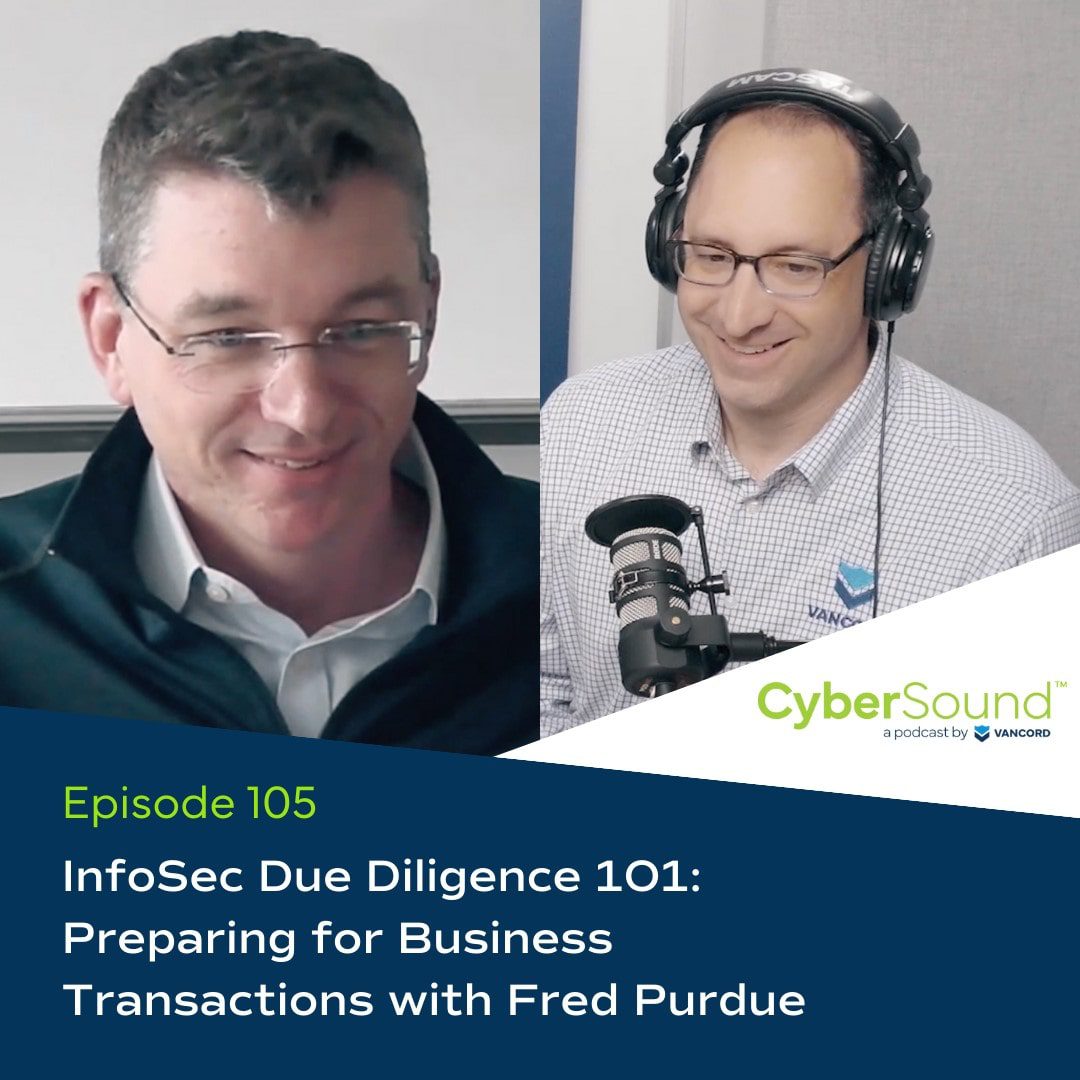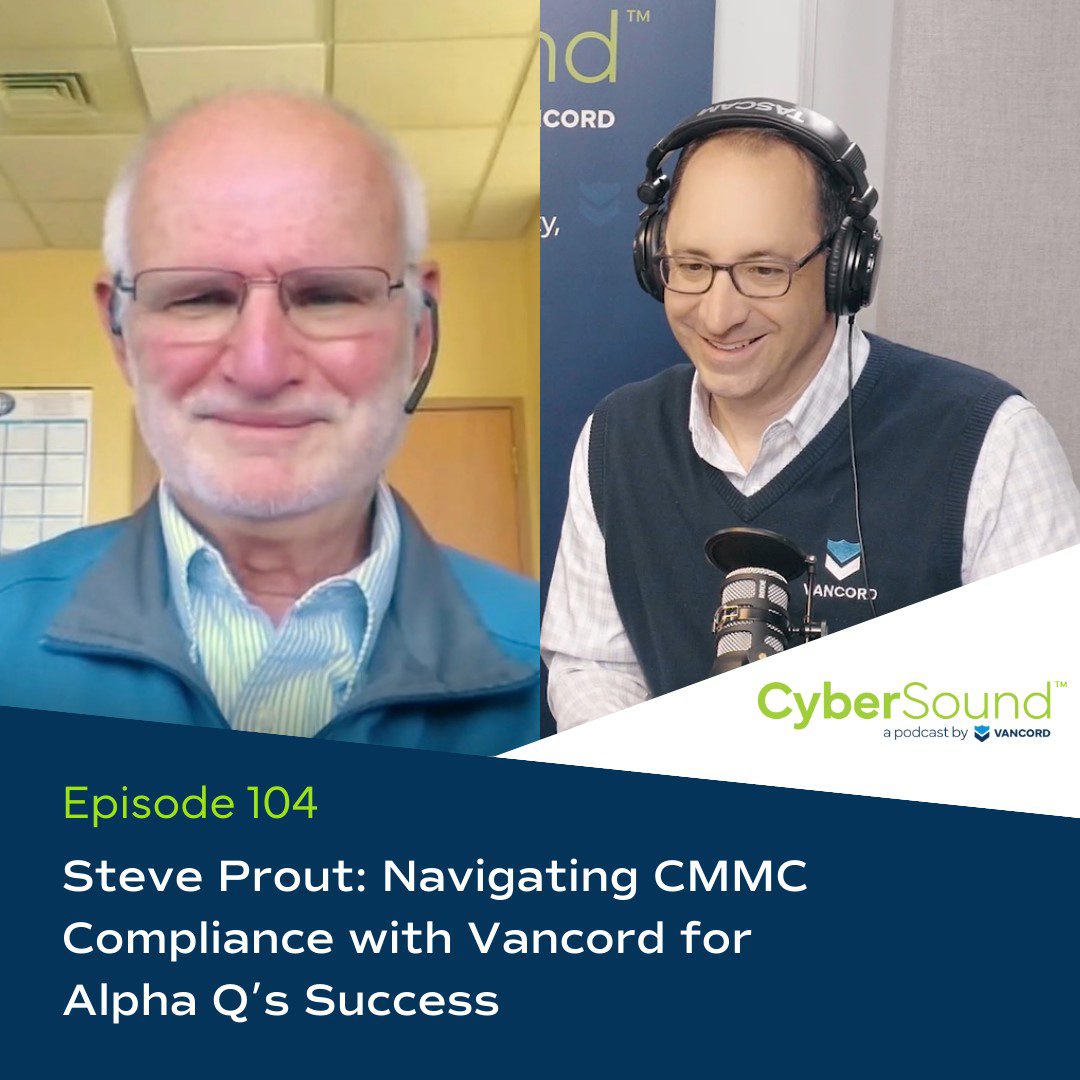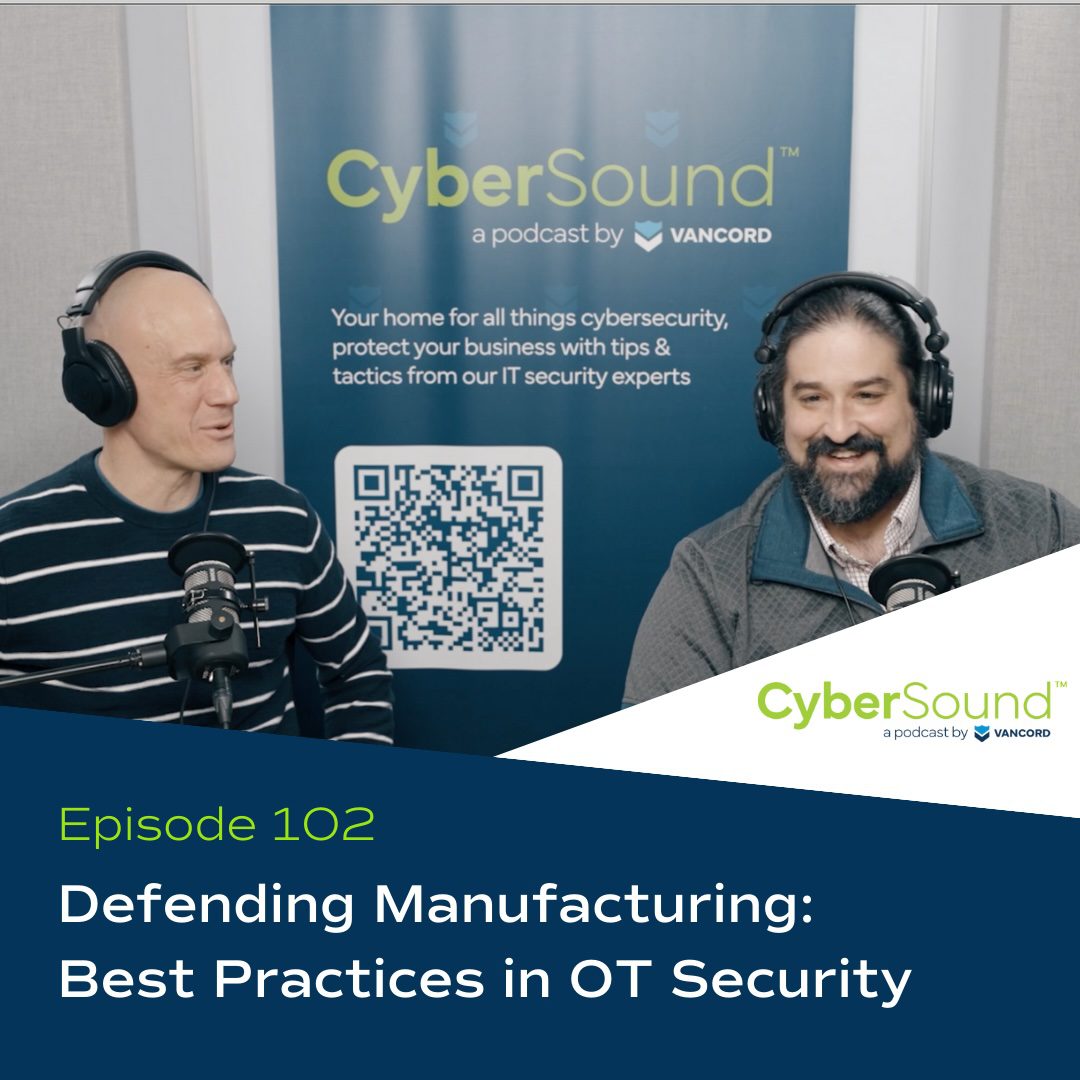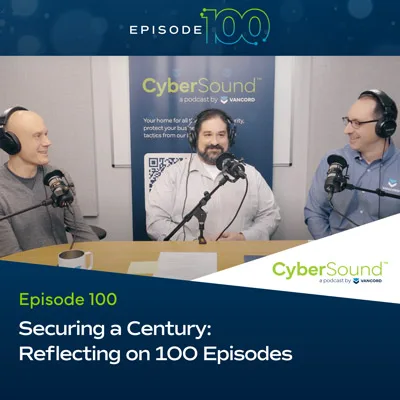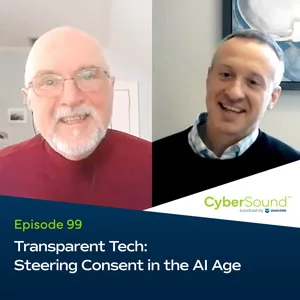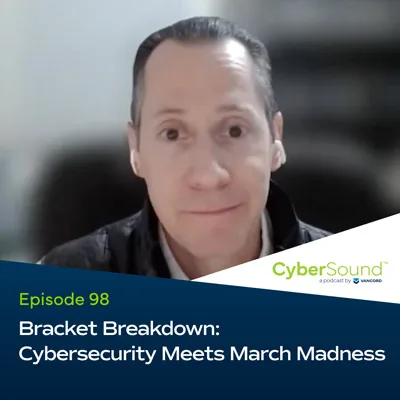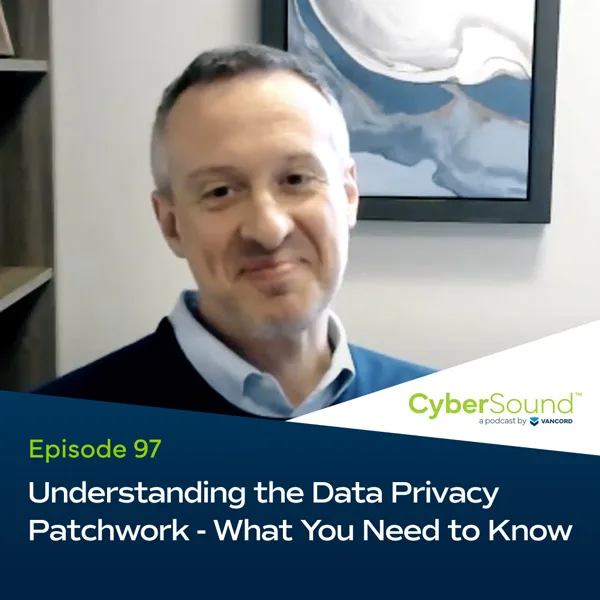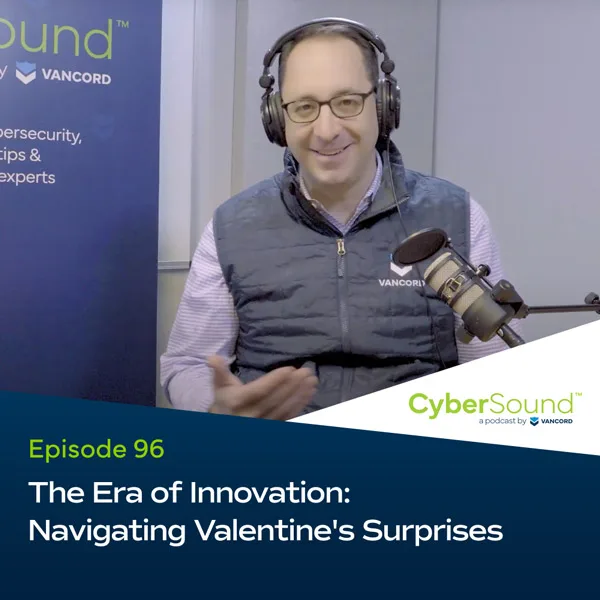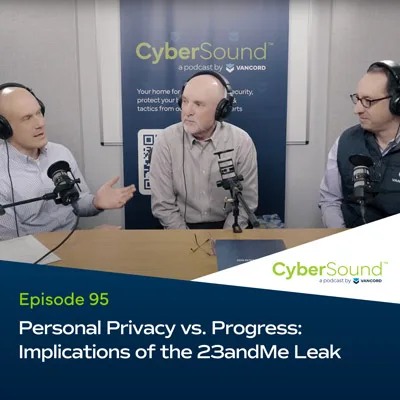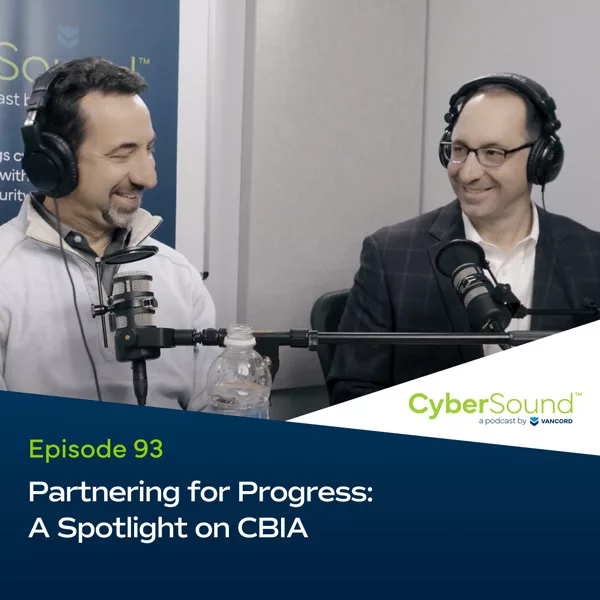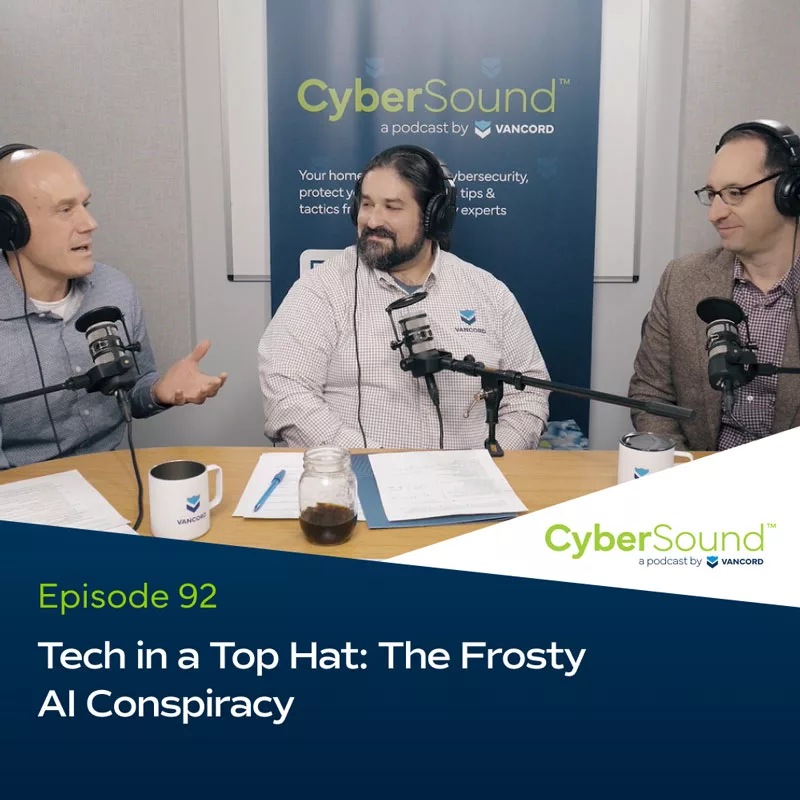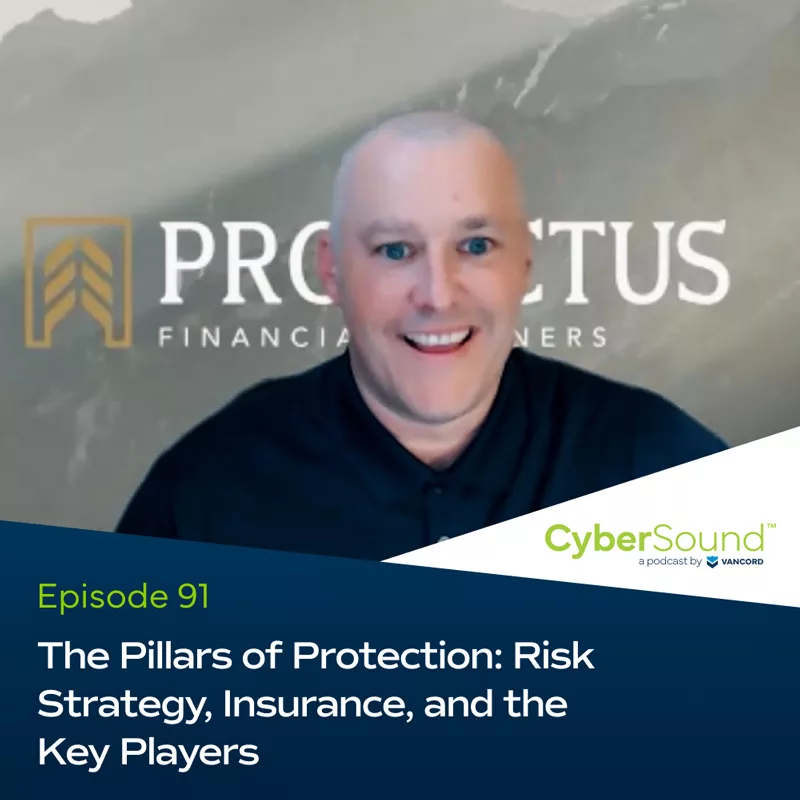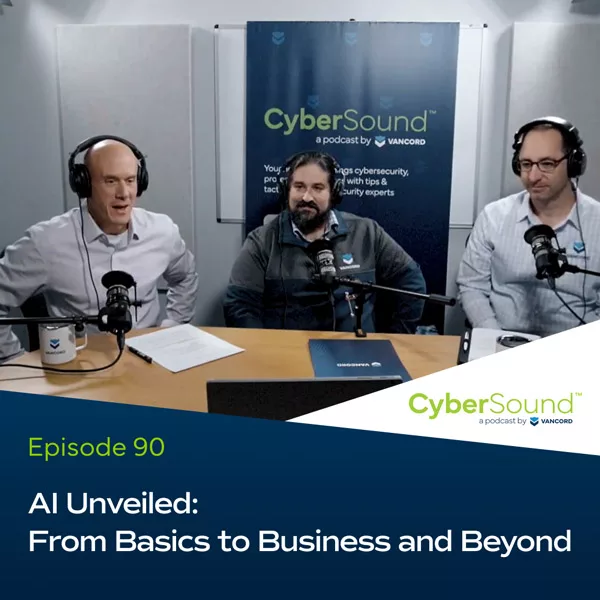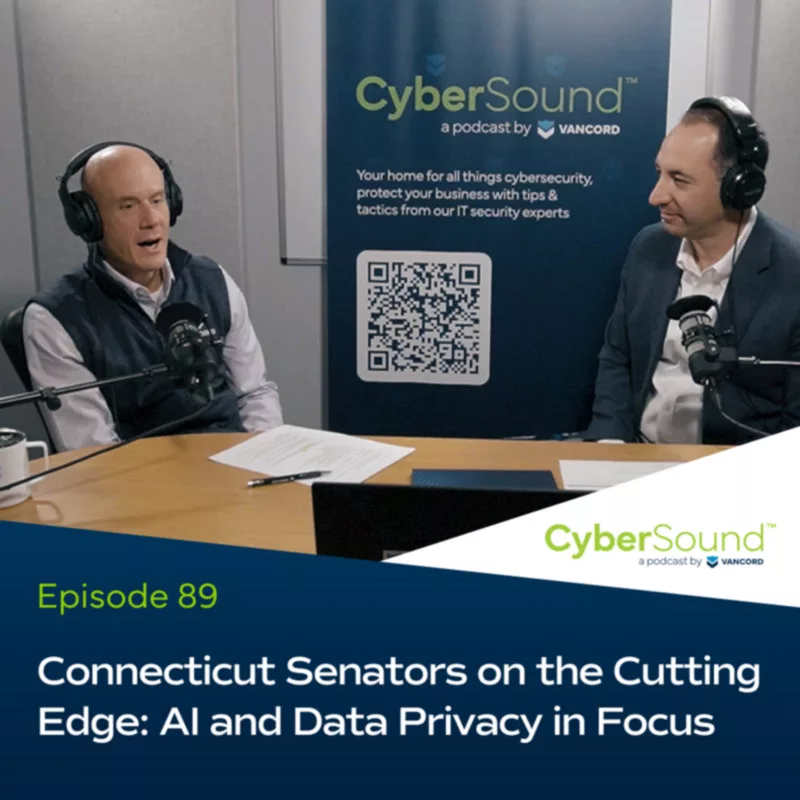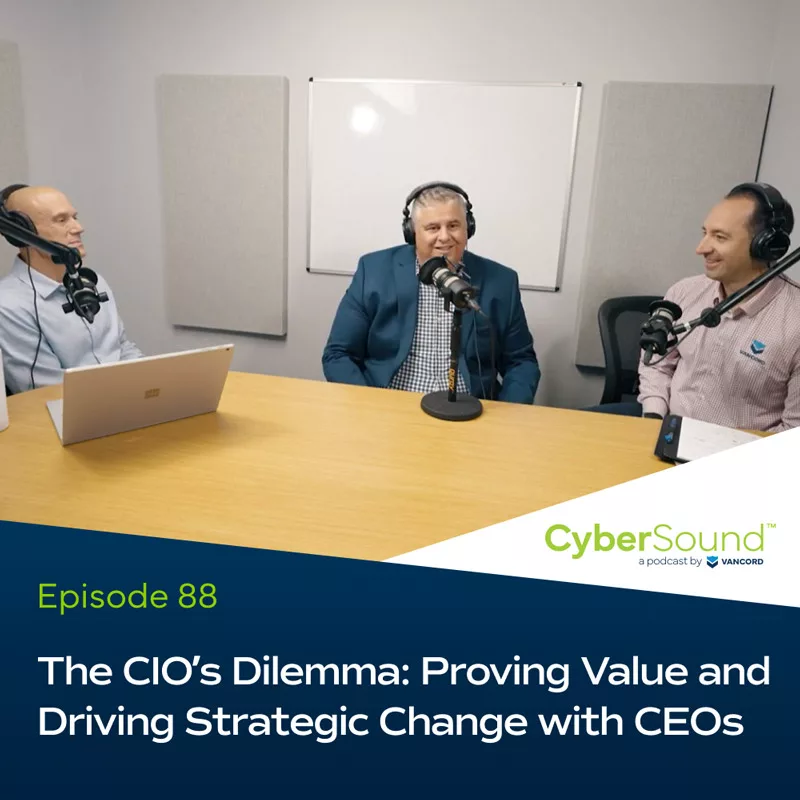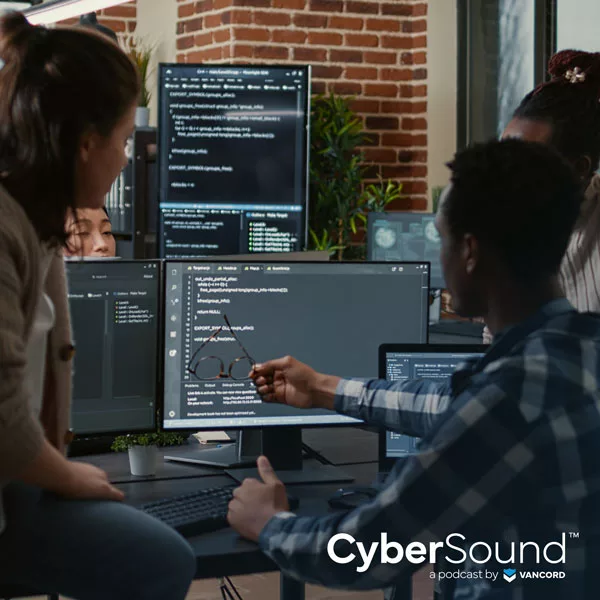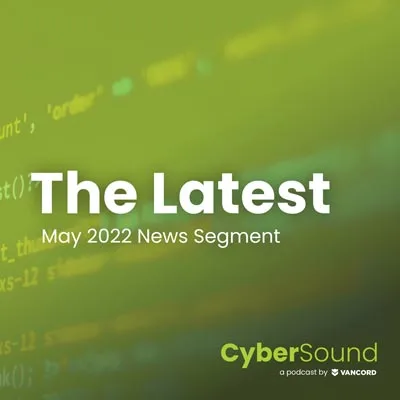Episode 132
Listen to this episode on
Episode Transcript
Narrator 0:02
This is CyberSound, your simplified and fundamentals focused source for all things cybersecurity.
Jason Pufahl 0:11
Welcome to CyberSound. I’m your host, Jason Pufahl, joined in studio because it’s been variable a bit lately. Michael Grande and we’ve got Jeff Auker, the Director of Development Services for Hartford.
Jeff Auker 0:22
Thanks for having me guys.
Jason Pufahl 0:23
Yeah, it’s a pleasure. So you and I met, actually, we met a couple times, but we talked about this maybe a month and a half ago, when you gave a presentation about sort of AI and some of the activities that the city of Hartford is engaged in. So I think that that’ll sort of serve as the basis. But, you know, honestly, I’d love to spend a little bit time on, you know, as we get going here, a little bit on how is Hartford doing, and what does the future look like. It’s, I’ve been a Connecticut resident more or less forever, right? I spent the time in out of state, but it’s a, it’s a city that has been really close to me, and you’ve sort of watched it, you know, sort of ebb and flow. It seems now there’s a lot of growth and a lot of things happening. So I want to spend some time on, you know, What? What are the positive things in store for us?
Jeff Auker 1:09
Happy to tell.
Jason Pufahl 1:10
So, but you know, the you had a lot of interesting stories, so, and so I was really excited to get you on because you you not only had a perspective around, you know, here, here is how Hartford is starting to reposition itself in that sort of technology space sort of co-mingled with some really interesting things about, you know. And here’s some buildings that we’re dealing with. And here’s, here’s some of the things that make those buildings kind of spooky. I love that story. So, you know, what if we kind of diving into that would be, would be great.
Jeff Auker 1:39
Great. Great. Yeah, on the AI side, I mean to step back. So I’ve been in the job for a little over a year now, year and a couple of weeks, you know, the mayor has been there for year and a half, and one of the first conversations we had is, I got to know I was running the emphasis office downtown, where we brought in about 13, 1400 people to create a tech center there, and arunin, and actually Mayor Bronaugh was there as well. We started talking about technology and the city of Hartford right. Just step back and you think about it, you saw a lot of work going on, or there’s a lot of great work going on down south, around Quantum and Yale and New Haven and the bioscience, life sciences they have down there. This is an awesome setup there.
Then we step back and you, okay, so Hartford should be participating in all this tech resolution and all these new jobs and these new skills and all these new capabilities that are coming out, but where, like, what would be on brand for Hartford? AI, right? So sorry, quantum seems a couple years out for us, right? We got some potholes. We were real close to some financial issues a decade ago or less, jumping into something that’s that forward looking without any sort of clear path, you know, right now. I mean, that’s exactly why you have the universities and the work they’re doing down there, you know, New Haven. But we needed something more practical, something more blue collar, more something that had a quicker return and a much clearer visible line from the investments in the work to the benefits of our residents and the corporations that are resident here and the small businesses trying to start up here. So AI came up pretty quickly, and it was less around shiny objects, and what could Hartford do to, you know, to push this race quicker and more about the workforce, more about the skills and the opportunities that Connecticut is infamous for not sharing with the inner city residents, right? I mean, when you get out of the suburbs, some of the best education, best opportunities in the world, of all time, right? It’s history, you get to the inner cities, especially in Hartford, those opportunities historically, have not trickled down, have not gotten into and have not been nurtured and built in the inner cities. So you have generations of folks that aren’t getting access to the technology skills that they need, and AI is, we believe, is something fundamental.
Jason Pufahl 4:06
And you’re missing out on potential talent.
Jeff Auker 4:08
Yeah, potential talent. So now, now the, you know, the big companies that are here going, well, we need more people that can at least work with AI startups are going, we, we don’t even, we’re not going to consider a workforce. It doesn’t understand AI. It isn’t digitally literate. So we had something to do here, and that’s how we came up with this idea of an applied workforce driven, skills driven, in, you know, focused on the urban resident, the urban, you know, corporations and small businesses that we host here, and then we serve. How can we create a center like that? And that’s how we got rolled.
Michael Grande 4:41
Well, how does the sort of, you know, talk about it from a state funding perspective, obviously, to get some of these initiatives going. But, you know, you mentioned New Haven, but sort of public private partnerships seem like they play a really big role long term. And you know, what are some of the steps that you’re taking towards building those relationships?
Jeff Auker 5:00
Yes, it’s the only way it works. I think Hartford is a city is doing a lot more to nurture kind of a mini or smaller version of like the meds and heads that Cleveland is famous for, but becoming a college town, giving folks those opportunities to, you know, to learn more in Harvard, but also be connected to the town. So that’s, that’s part of what we’re trying to grow and trying to bring some of that back, you know, in terms of so when you take the schools, the industry, the state, the city, and you put all this together, and then the developers, who, you know, they’re, they’re looking for the lanes, given the interest rates and tariffs out there to develop, but when you find one, they’re gonna go hard after it. So you’re gonna need all of those people in this environment to build something new, right? So what’s been great about the state, they’ve been an absolutely necessary and great partner with us is, all right. So where we want to put this, for instance, just kind of take that, that story the corner of Windsor Street, 150 Windsor. So as you go to the Yard Goat Stadium. That big, great building, yeah, that goes away.
Michael Grande 5:00
Okay.
Jeff Auker 5:02
Right? They were taking that down. Go back. Look at some of the current articles. That place is a public health disaster. It has been overrun with illegal activity as hard as we try to seal it up. Sure, it’s just, it’s it’s sad and it needs to go away, yeah, but that’s expensive, so to take down that big of a built building that’s literally was built to survive bomb attacks.
Michael Grande 5:23
Right.
Jeff Auker 5:24
Well, you said, I mean, you said it’s full of water, yeah, oh, yeah. And then the down downstairs, like two stories of water that, yeah.
Michael Grande 6:08
Nobody knows what’s in there, it kind of reminds me is, Last of Us. Yeah,
Jason Pufahl 6:33
The silo.
Jeff Auker 6:35
One eye to come up, yeah. So we need state help to take that down. We need private help from the private developers and the engineers, the environmentalists, to figure out the path to take that down, dispose of that water you can’t just like.
Michael Grande 6:47
Not that guy.
Jason Pufahl 6:47
Yeah, yeah, pour it out.
Jeff Auker 6:48
So that, that, in and of itself, is going to be $10 million plus that’s got different layers of state funding in it, which would only make sense to the state, is if we have to put something there on top.
Jason Pufahl 6:48
Do you have a commitment now to actually take the building down?
Jeff Auker 7:01
We do. We do. We do. There’s one last piece of it that we got to slide in, but we’ve been assured by the state in place.
Michael Grande 7:07
Great.
Jeff Auker 7:07
So step one, yeah, so that comes down, and then to build the whole thing up. I think one of the biggest appeals to the state and others around this is the complex we’re talking about will have an AI center, and that will be funded through these cluster funds that we’re talking about. We’re also bringing in maker space, which has a 20,000 square foot space they’re looking to expand. They have some of their own donors, partners, all that. So in a lot of private partners there. So that kind of brings them into the space. Then Randy Salvatore and RMS, who own the developer rights up there, are putting their own development money into garage parking in a hotel that’s going to go there. So instead of looking at Yard Goats Stadium and seeing that raising, you’re going to see a beautiful boutique hotel with a rooftop bar mini Wrigley kind of feel. So yeah, look over interesting. Yeah. So the way this makes sense is the city puts the commitment in, puts the work in, to work through all the details of just digging. We got great developers, private partners, public partners. That’s the only way this works.
Michael Grande 8:08
That’s correct.
Jason Pufahl 8:09
So you use the word blue collar a couple of minutes ago, which I don’t think you often hear. You know, blue collar and AI tied together. So what, what’s the vision for that workforce development concept around AI?
Jeff Auker 8:24
I mean physically, visually, as you walk into this place, the the first as you walk in it will be a public, clearly public community area. So all of the existing workforce programs from the capital area, tech programs, CWP, Department of Labor, we want to give them an instance in there. That’s great. If it’s as simple as, hey, sign up here or click this, here’s who to call, or class is going on, or they move their operations in over there. So we want this: when you walk in, you’re going to see all the workforce opportunities. And now, like in my mind, we haven’t worked through all this with everybody, but you know, you look off to the right, say, and then there’s the Maker Space Bay, okay, where you’ve got massive machines for wood, steel, everything you can fabricate 3d printing. And then the AI sections that they’re putting in there. So it feels inviting. I can go over there and start touching stuff. You have places to sign up.
Jason Pufahl 9:14
And when you say, you, when you say the you right? So the fir, when you said a second ago, you know, a public space. First thing that popped in my head is, it’s like, it’s like the re imagining of the public library. And I don’t know if that’s necessarily a good way to describe it, but that’s what it almost immediately felt like. Like, all right, no, people aren’t going to libraries anymore to grab books, but would people use?
Michael Grande 9:37
Welcome hub space that can sort of have access to things? You know.
Jason Pufahl 9:40
Did that seem in any way representative what you’re thinking? Or am I off?
Jeff Auker 9:44
Yeah, I want to be careful, because I love what our libraries have been doing, yeah, and they and they become more digital, more AI, and that’s what making more community. But I think you’re, I hadn’t put that connection together. But yeah, that feel you could walk in, there could be a group meeting there, there could be some people drinking coffee there. There’s some people talking about some new release of, you know, grok, whatever. And they you know, how do we distill this? And what do we do that? And you just listen in on it, yeah, but that feel, and then there’s places you can go to learn further, to do work, to create a startup. We’re not going to be focused on incubation, because there’s some basic steps along the way, creating the way, creating the workforce and the skills and all that to create credibility. But if you want to.
Jason Pufahl 9:47
That’s cool.
Michael Grande 9:53
Are there any sort of, it sounds like a tremendous plan. Are there any like distinct needs that you’re still pursuing right now that, you know, I’ve got to get this in place. We’ve got to find this partnership, you know, sort of, you know, remaining items to plug in to make this fully successful.
Jeff Auker 10:12
Yeah, I think, you know, the way we’ve been approaching this, which is, it sounds subtle, but it’s significantly different than other investments, is, we’re trying to just capitalize the building in city and the state, and then the money from corporations and universities and all. It’s all going to go into program, not the capital, like we want to there. So the question, sorry, well, just like distinct needs, so the corporate side, like, we got a lot of head nods, thumbs up. Has the state signed yet? Not yet. So there’s, there’s a piece of, I mean, all the, you know, the words are great, sure. So I think, you know, solidifying that corporate sponsorship and align, it’s really more alignment on our end, what are they trying to do, and how do we make sure that we meet those needs? So we got to nail that down. We have some really, really strong potential partnerships on the tech side. In the paper the other day, we talked about Google and how they’re really looking at this state as a one of the few rational places in the world where you see people. I mean, it’s as hard as the debate was over (SB) 2 in the regulation of AI, those were rational debates on the future of AI in government, and you don’t find that these days. So the tech partners are going to be a big deal, and then it’s going to be a matter of tuning. So we have a lot of models that have been used before that want to combine around engaging the universities and capstone projects on work based training in Connecticut that’s got a lot of nuances and things to work through, you know, just to make sure, you know, everything, the apprentices are certified in internships, we’re going to do a lot of that. So there’s a lot of spade work that’s going to have to be done, I think, to take the vision, you know, to make sure that we have the money, you know, the story we’ve been telling is backed up by the commitments, and then just doing that hard work of tying these technologies and possibilities to what you know is needed in the city, right?
Michael Grande 12:59
That’s great.
Jason Pufahl 12:59
So this is probably one of our least, like, you know, specifically security for this podcast.
Jeff Auker 13:00
I’ll get a little bit on that, I gotta try see what I can do for you. Yeah, no, no, you know.
Jason Pufahl 13:01
And honestly, I feel like we’re, we’re, we’re morphing a little bit into, you know, just generally, more business specific content anyway. But I, you know, I’m interested in your perspective on where Hartford’s going. So, you know, as somebody, I’m not down there all the time. I’m reasonably close by, but driving through, actually, my wife, my daughter’s getting her her driver’s license. So she drove through Hartford the other day, so I had a little bit more of a chance to look around. And there’s a lot of building. And what I’ve noticed more was there’s a lot of residential apartment stuff, certainly around the Yard Goats. I had a meeting the other day at the University of Connecticut School of Business, and there’s some smaller apartments that are there, like you’re just seeing building all over the place. And I think that’s been one of the things that, frankly, Hartford is struggling with, right getting people to live downtown. It’s always been considered somewhat of a commuter city. Now there’s fewer commuters. How’s Hartford dealing with that? And it felt, and it’s interesting, because it felt to me more vibrant than it has been, in a way, in a different way. So I’m just kind of curious.
Jeff Auker 14:07
Love to hear that. Yeah, I mean, the residential building is obvious and yeah, expected. I mean, every building that’s going in before it’s open is somewhere between 85 and 97% rented before it’s open, before it’s okay. We were just
Michael Grande 14:21
Substantial housing.
Jeff Auker 14:22
So if you So, if you’re a developer, the demand is there. Yeah, they’re going to do it. The debate around the mix of the housing and affordable working wage, all that, that’s what we’re in the thick of now, because don’t go too deep down this rabbit hole. But you know, hard for generally, you target 10 to 20% affordable housing across your whole Hartford said 40% okay, and this is why that that debate around the surrounding towns, and, you know, they just take all the market rate and higher end stuff, and then the all of the affordable housing gets pushed to one area. You’re not getting the vibrancy. You’re not supporting this business. This is, nobody wants to live like that. That’s just a bad way of managing the city. So we’re, we’re working through that and what those are. So we’re being very specific in within buildings, like, how many are going to be affordable, and at what level, how many be market rate? And with the, we have a little more influence on that, I think, in normal times, because interest rates are high, right? Commercial lending and stuff to come by, you know, going because
Michael Grande 15:24
I was gonna say the cost of profit.
Jeff Auker 15:26
So now, now everything requires some sort of tax, sure, some sort of permitting help, right? And that’s where we can in guiding where we want it to go. I mean, in the end, we’re like, let the market do what the market does. But, you know, give it a little shove. But yeah, the response on these things at every level downtown, people are already coming up with, what if we took that building? And, yeah, you know, so we’re really happy about that, to show that people do want, you know, when given the opportunity, people want to come to Hartford.
Jason Pufahl 15:52
Well, and, and, you know, with UConn getting maybe more of a presence, I think I just read, you know, 200 beds coming. So, you know, they’re now, you’re now, you’re actually getting some residential space for the students, which is huge, and obviously great for you. It continues to grow.
Jeff Auker 16:12
Now Hartford announced this week that they’re going to create a 500,000 scholarship to house people in Hartford. That’s the connection, right? That’s the only way this is going to work. The corporates, the universities, the city, the state, you know, the council, the neighborhoods, got a lot of work to do. But, yeah.
Jason Pufahl 16:26
But, but, but it does feel like it’s trending in the right direction. And it’s interesting that your statement about the about the mix of residents, you know, I was looking at these thinking like, all right, these are probably some reasonably high priced units.
Jeff Auker 16:36
Some of them are, yeah, yeah. I mean, and part of it is the look the market rate apartments. I think we’re all feel that they’re probably a little pricey for Hartford, but that’s a matter of just supply and demand. Sure that’s the point of market rate that what that’s telling us is build more of these, because you end up in a situation where the folks that can afford the higher end rents and purchases, if they can’t find them, they’re going to look for something else, and so that’s going to displace the folks can afford that level. And it goes down, and then that displaces, in the end, the folks at the basic level. And that’s where you run into the problems with services and keeping the city vibrant.
Jason Pufahl 17:12
Well, and you were, the investments now going into the stadium downtown.
Jeff Auker 17:16
Yeah.
Jason Pufahl 17:16
Right. So that’ll that’ll be cool too.
Jeff Auker 17:18
And hopefully some other things go into that stadium downtown.
Jason Pufahl 17:21
Yeah.
Jeff Auker 17:21
Stay tuned. Stay tuned.
Jason Pufahl 17:22
Okay, okay. anything else we want to…?
Jeff Auker 17:26
Well, the one piece on security, I would know. I can get that either because, I mean, obviously, obviously, it’s, I mean,I think the this is going to either… I have more faith in the actual security around AI than I do in our ability to convince the world that it’s going to be secure, right? I’m not a security guy by trade, but I kind of know enough to say that if you look at the blocking and the tackling, you know, the weak spots do seem to see, you know, be, you know, me using my daughter’s birthday as my password, right? It’s all the social engineering. So, but, but there is a stigma associated with like, it’s, it’s doing things people aren’t managing, you know, the privacy and all that. So, so we have a real perception issue there, and a real issue underneath that. So one of the things that came out of this debate around (SB) 2 is, well, we didn’t get the regulation, or Senator Maroney and others didn’t get the regulation on AI at the state level they wanted. There were programs that absolutely made sense in that bill, especially around a safety and security testing center, right, right? So whether the results of a failed tests are a civil fine, a criminal action, or just a, you know, a C rating on your, you know, your your storefront, you still need to be able to test that. Yeah, and I think that the biggest place we want to get into. I mean, there’s plenty of people, Stamford, everywhere else, home and all that, that are digging into the core components like the llms and telling you how they benchmark and how secure they are. Where I get concerned is the as is builds, right? So you start strapping one thing to another, sure, and did you leave a leak? Yeah. And how do you handle those transitions? If you have an RBAC setup, Does your agent, your AI agent, get the same role you do, right? Is that good or bad? I don’t know. How do you handle that? So we want to set up this lab, and we It looks like there’s funding coming through appropriations for this where we will be setting up with this group, CAIA, the Connecticut Alliance, Connecticut AI Alliance, first in the nation, all of the universities, higher ed institutions in the state have signed on to this as a way to guide the ethical and effective administration of AI, and they’d be the ones behind the safety center using nisf and other templates and standards for how do you benchmark these things for safety, for security, for privacy? And you know, one thing clear, we were, while we have so much data in the city around insurance and healthcare, I think our our value isn’t like just tapping into that, right? Because that’s that’s not smart. But if there’s ways we could create synthetic data sets out of that that we could wall off, that the structure is the same, you could experiment with it based on everything we know in the city. That’s interesting. But the whole point is to wall these things off, have a test bed for it, and really be on that edge. Because something, I mean, like something like an agent, you know, and then if the agent asks another agent, that’s not part of your chain to do something, does that take on your…?Yeah, I don’t know. And this is why I think you guys have some good job security, yeah.
Jason Pufahl 20:40
And so we’re doing some work around agentic AI now, and I’ve watched essentially what I would describe as two agentic AI models, essentially battle, yeah, we we were using communication, and we were being communicated back to with AI, and it was, it just was a matter. And you realize, as good as it is, there’s still a long way to go. So there’s so much enthusiasm, and I think there’s people who actually, honestly feel like I missed the boat. You know, I haven’t jumped on quickly enough, or I’m not using it enough. I mean, we’re new. We’re all new, and there’s so much opportunity, so much more opportunity to learn how to do it securely and privately, but then also figure out how to actually take legitimate make legitimate use out of it, right? I mean, everybody understands the LMM and the ChatGPT stuff. There’s so much more to it. So it’ll be really interesting to see what comes out of the work that you’re doing.
Michael Grande 21:38
One of the key aspects really feels like is sort of integrating that workforce element into the training for the next several years. I think the training element sort of the companion of, sort of stewardship of we have a model. We’re using a model. How do we deploy it? How does it make our business more efficient? That’s where the training needs to happen, where it’s not happening necessarily, at the university, college level, the training school level, it’s not happening right now. So any help that cities, states, government can provide in guiding that training would be helpful for the workforce.
Jeff Auker 22:11
We’re looking to create a utility where that training can go on and take place, because it’s big deal. Yeah. A really big deal.
Michael Grande 22:18
Cool. That’s great. Very exciting stuff.
Jason Pufahl 22:21
Yeah, this is great. And, you know, I’m excited to see where things go. Maybe someday I’d like to get in that building andsee the water. I’m so intrigued by that.
Jeff Auker 22:33
It’s funny, like from the outside, you look at solidly buildings. It was a check cashing.
Michael Grande 22:38
It’s a reservoir.
Jeff Auker 22:39
Yeah, okay, well, you gotta be able to do something with the moment you get inside, you’re like, yeah, this needs to go.
Jason Pufahl 22:46
And, you know, those places in the world exist, right? But you probably do drive by them all.
Jeff Auker 22:50
Yeah, yeah. And this one, but yeah, now you’ll actually have something to look at.
Michael Grande 22:54
Very exciting.
Jason Pufahl 22:55
That’s great. Well, hey, I appreciate you joining.
Jeff Auker 22:57
My pleasure.
Jason Pufahl 22:58
You know, I think it sounds like we might have a discussion or two, follow up for sure, and we’ll go from there. Yeah, it was a pleasure. Thanks. And, of course, as always, if anybody, you know, if anybody’s enthusiastic about maybe we’ll say enthusiastic about Connecticut, yeah, Hartford and where we’re going, you know, shoot us questions. We can certainly redirect them. And you know, as we get more information about all the work that you’re doing, we’ll be sure to pass it on.
Jeff Auker 23:20
Come back anytime.
Jason Pufahl 23:20
Cool. Thanks, everybody.
Narrator 23:22
We’d love to hear your feedback. Feel free to get in touch at Vancord on LinkedIn and remember, stay vigilant, stay resilient. This has been CyberSound.
